Mera Rab Waris Drama Review – When it comes to Pakistani dramas that leave a lasting impression on viewers, Mera Rab Waris undoubtedly holds a special place. Produced by 7th Sky Entertainment and aired on Hum TV, this drama has been widely celebrated for its unique storyline, emotional depth, and unforgettable performances. In this detailed Mera Rab Waris Drama Review, we explore why the serial continues to resonate with audiences years after its release. Far from being just another love story, it presents a layered narrative that beautifully blends themes of faith, love, loyalty, betrayal, family conflicts, and the eternal struggle between worldly desires and spiritual values.
At its core, Mera Rab Waris explores the complexities of human relationships while emphasizing the role of religious and moral principles in guiding life’s toughest decisions. Unlike many contemporary dramas that tend to focus solely on love triangles or toxic family politics, Mera Rab Waris takes a refreshing departure. It dives into how one’s faith can act as both a shield and a test in times of hardship. This very aspect sets it apart, and any Mera Rab Waris Drama Review is incomplete without acknowledging how gracefully the show integrates religious undertones into mainstream entertainment.
The introduction of the drama begins with the life of Ayesha, a simple, pious girl deeply rooted in her values and faith. Her character immediately establishes the moral compass of the narrative. She is juxtaposed against Haris, a modern young man who, while respectful and grounded in some ways, comes from a completely different worldview. Their love story becomes the central axis of the drama, but it is far from being just about romance. Instead, their relationship highlights the challenges couples face when their beliefs, lifestyles, and family expectations clash. In any Mera Rab Waris Drama Review, this contrast between Ayesha and Haris must be emphasized as it serves as the emotional and intellectual foundation of the entire story.
What makes this drama especially appealing is how it avoids clichés. While it could have easily slipped into typical tropes, Mera Rab Waris instead dares to question societal norms, explores the boundaries of patience and sacrifice, and forces the audience to reflect on their own values. The Mera Rab Waris Drama Review would be incomplete without acknowledging the depth of its writing by Jahanzeb Qamar and the careful direction by Asad Jabbal, who ensured that every scene carries weight and meaning. The dialogues are rich with emotional intensity, often provoking viewers to pause and think rather than passively consume the story.
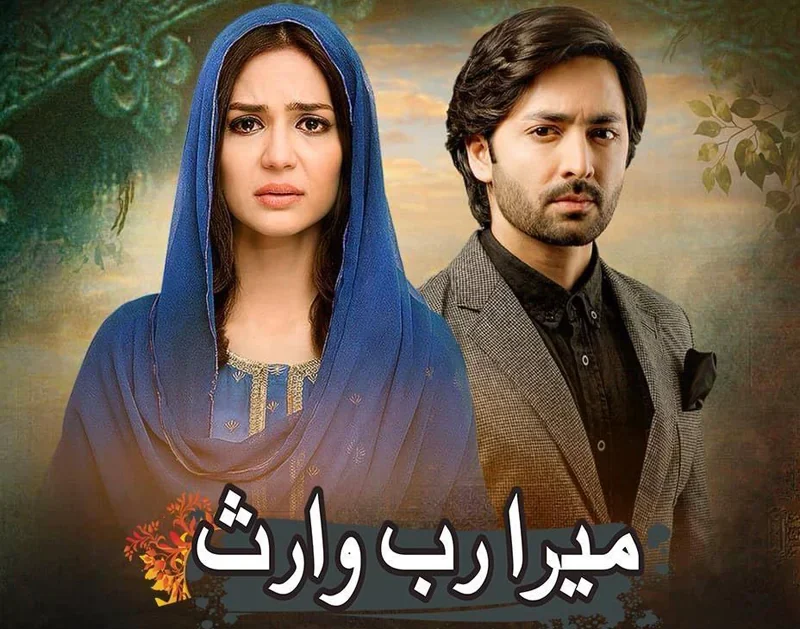
Another aspect that adds to the drama’s charm is its ability to maintain a strong connection with viewers from all walks of life. Whether you are someone deeply rooted in tradition or someone balancing modernity with faith, the characters in Mera Rab Waris offer relatable struggles. This relatability is precisely why the drama sparked countless discussions in households and on social media platforms during its run. As a Mera Rab Waris Drama Review, it is crucial to underline how the drama became more than entertainment; it turned into a cultural conversation.
Moreover, the casting choices significantly contribute to the show’s authenticity. Danish Taimoor and Madiha Imam, as Haris and Ayesha respectively, delivered outstanding performances. Their on-screen chemistry brought the characters to life in a way that allowed audiences to truly invest in their journey. From moments of heartfelt romance to heated arguments fueled by misunderstandings, their acting elevated the script, making it unforgettable. Any comprehensive Mera Rab Waris Drama Review must highlight how the cast not only fit their roles but enhanced the storytelling.
On a broader level, Mera Rab Waris also sheds light on important social issues. It touches upon the consequences of greed, the fragility of trust, and the often-unspoken struggles within family dynamics. Each subplot reinforces the drama’s central theme—that life is a constant test of one’s faith and values. This gives the serial a timeless quality, ensuring it remains relevant for future generations.
In conclusion, the Mera Rab Waris Drama Review cannot be restricted to labeling it as just another Pakistani serial. It is a drama that provokes thought, stirs emotions, and delivers life lessons in subtle yet profound ways. Its strength lies in its ability to present a love story that is not shallow but deeply tied to spiritual and moral questions. The introduction of this review lays the foundation for exploring the plot summary, character analysis, themes, direction, and audience reception in the following sections. For anyone looking to understand why Mera Rab Waris continues to hold significance, this review promises a deep dive into every element that made the drama a memorable masterpiece.
Background Information
Every drama comes with a backdrop that shapes its narrative, creative vision, and cultural relevance. In the case of Mera Rab Waris, understanding the background is vital to appreciating its layered storytelling and unique appeal. Any in-depth Mera Rab Waris Drama Review would be incomplete without first diving into the factors that influenced its creation, the team behind the project, and the societal climate in which it was released.
Produced by the powerhouse duo Abdullah Kadwani and Asad Qureshi under the banner of 7th Sky Entertainment, Mera Rab Waris was broadcast on Hum TV in 2019. The drama was penned by Jahanzeb Qamar, a writer known for weaving moral, social, and emotional elements into compelling narratives. His approach in this project was particularly noteworthy because he chose to address themes of faith and spirituality within the context of modern relationships—a theme not commonly explored with such depth in Pakistani entertainment. Director Asad Jabbal was tasked with bringing this sensitive and layered script to life, and he approached it with a delicate balance of realism and drama.
When evaluating the background in a Mera Rab Waris Drama Review, it’s important to consider how Pakistani society at the time was navigating a dual identity—rooted in cultural traditions while also influenced by modern global trends. This societal tension provided fertile ground for a drama like Mera Rab Waris to resonate deeply with audiences. Ayesha’s character, representing tradition and unwavering faith, and Haris, embodying modernity and liberal values, mirrored the very dilemmas faced by countless individuals and families. Viewers saw themselves in these characters, which is one of the main reasons the drama struck such a strong chord.
The casting also played a pivotal role in shaping the drama’s impact. Danish Taimoor was already a household name, celebrated for his versatile acting skills and ability to portray emotionally complex characters. Madiha Imam, on the other hand, was known for her nuanced performances and her ability to portray innocence, strength, and vulnerability in equal measure. Their pairing was a strategic choice, as their contrasting acting energies perfectly reflected the clash of values central to the storyline. In any Mera Rab Waris Drama Review, one cannot ignore how much the drama’s success rested on the shoulders of its cast.
Music and background score are often underestimated in reviews, but for Mera Rab Waris, they were crucial in enhancing the emotional depth. The OST, sung by Sahir Ali Bagga and Sehar Gul Khan, carried both a hauntingly beautiful melody and lyrics that echoed the essence of the narrative. In fact, many fans first discovered the drama through its OST, which went viral even before the storyline gained momentum. A comprehensive Mera Rab Waris Drama Review must acknowledge that the music was not just an accessory but a narrative force in itself, reminding viewers of the story’s emotional intensity long after the episode ended.
Another aspect that defines the background of this drama is the production quality. Unlike many serials that struggle with pacing or rely heavily on extended filler episodes, Mera Rab Waris maintained a relatively tight narrative. The direction ensured that every scene carried weight, while the cinematography brought a sense of intimacy, often focusing on close-ups to highlight emotional expressions. This created a deeper bond between characters and audiences. In terms of background analysis, this approach sets Mera Rab Waris apart, making it worth mentioning in any detailed review.
Furthermore, the release of Mera Rab Waris sparked debates not just in living rooms but also across social media platforms. The drama was widely discussed in online forums, YouTube reviews, and fan communities. This shows how its background extends beyond television to the larger digital landscape, where Pakistani dramas are now consumed, analyzed, and critiqued by global audiences. Including this detail in a Mera Rab Waris Drama Review highlights the drama’s reach and relevance in today’s interconnected world.
It’s also worth noting that the drama was released at a time when audiences were somewhat fatigued by repetitive storylines revolving around saas-bahu politics, extramarital affairs, or exaggerated villains. Mera Rab Waris came as a breath of fresh air, offering substance along with entertainment. Its exploration of themes such as justice, betrayal, greed, and faith gave it an edge, proving that viewers were hungry for content that engaged them on an intellectual and emotional level. Any Mera Rab Waris Drama Review that traces the background must recognize this shift in audience expectations.
In summary, the background of Mera Rab Waris is rooted in a perfect combination of strong writing, powerful direction, thoughtful casting, and a societal context that made its message both timely and timeless. From the production house’s reputation to the social climate and the music that amplified its emotions, every element contributed to the drama’s overall impact. Understanding this background is key for anyone attempting a comprehensive Mera Rab Waris Drama Review, because it reveals not just how the drama was made, but also why it continues to resonate with audiences today.
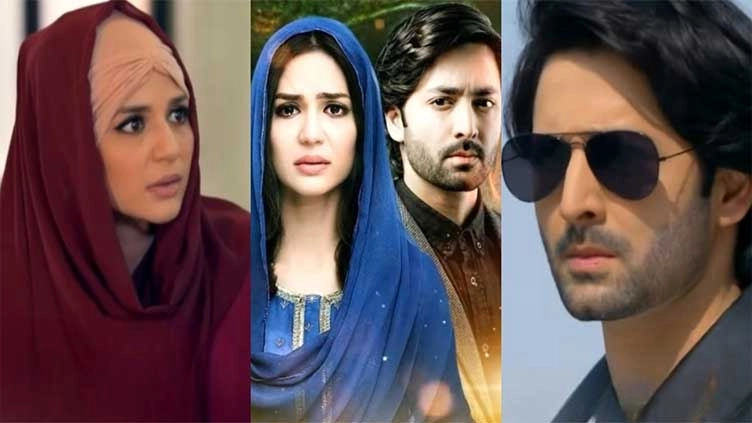
Plot Summary
A comprehensive Mera Rab Waris Drama Review must carefully break down the plot because this drama is remembered not only for its strong performances but also for its layered and emotionally charged storyline. Unlike typical serials that revolve around endless family feuds or shallow love stories, Mera Rab Waris tells a tale of love, faith, betrayal, and the clash between modern and traditional values. It is a story that takes viewers on a rollercoaster of emotions, keeping them engaged from the very first episode until the final moment.
The story begins with Ayesha, a young, modest, and deeply religious girl who believes in living her life according to the teachings of Islam. Her character sets the spiritual tone for the drama. Ayesha is portrayed as someone who doesn’t just preach faith but embodies it in her everyday actions—whether it is her dealings with family, neighbors, or strangers. Early on, her personality makes it clear that she will be the moral compass of the narrative.
On the other side, we are introduced to Haris, a young man from a liberal, well-off family. Haris is educated, confident, and worldly in his outlook. While he respects tradition to some degree, his lifestyle and values are vastly different from Ayesha’s. This stark contrast between the two characters is where the drama plants the seed of conflict, and as every Mera Rab Waris Drama Review notes, it is this clash of values that defines the story.
Despite their differences, Haris and Ayesha fall in love. Their marriage becomes the central thread of the drama, representing not just the union of two individuals but also the collision of two ideologies. Haris admires Ayesha’s simplicity and honesty, while Ayesha is drawn to Haris’s caring and respectful nature. Initially, it seems as though love will conquer all, but the reality of conflicting worldviews soon begins to test their bond.
As the story unfolds, the drama introduces several secondary characters who serve as catalysts in Ayesha and Haris’s journey. Family members, friends, and rivals each play their part in either strengthening or weakening the couple’s relationship. The character of Faizan, in particular, becomes central to the tension. His interest in Ayesha and manipulative tactics create rifts between the couple, highlighting how jealousy and betrayal can destroy even the strongest foundations. Any detailed Mera Rab Waris Drama Review must underline how the supporting cast adds layers of complexity to the central love story, making it more than just a two-person narrative.
One of the strongest aspects of the plot is how it ties personal conflicts to broader themes of morality and justice. Ayesha repeatedly faces situations where her faith is tested. Whether it is dealing with false accusations, navigating family politics, or managing Haris’s moments of doubt, she consistently relies on her spirituality as her source of strength. In contrast, Haris’s journey is one of realization—understanding that true love cannot survive without trust, patience, and respect for differences. This dynamic is what makes the drama’s narrative so relatable and emotionally gripping.
As the plot progresses, misunderstandings and manipulations drive a wedge between the couple. Haris, influenced by external voices and his own insecurities, begins to mistrust Ayesha. This phase of the drama is particularly heart-wrenching, as viewers witness how a once-strong bond starts to crumble under pressure. Yet, it is also during this period that Ayesha’s resilience shines the brightest, and her unwavering faith becomes a symbol of hope.
The climax of the drama brings all these threads together in a powerful and emotional way. Betrayals are exposed, truths come to light, and justice is served. Haris realizes the depth of his mistakes and the purity of Ayesha’s character, but the journey to redemption is neither easy nor instant. The final episodes ensure that viewers are left reflecting on the consequences of greed, lies, and betrayal, as well as the rewards of patience, loyalty, and faith. Any meaningful Mera Rab Waris Drama Review must acknowledge how the ending ties together all the themes with emotional closure.
What makes the plot especially memorable is its pacing. Unlike many dramas that drag unnecessarily, Mera Rab Waris keeps its storyline tight, with each episode driving the narrative forward. Twists and revelations are placed strategically, ensuring the audience remains hooked. Viewers are not just entertained; they are forced to think, question, and even relate the events to their own lives. This is precisely why the drama continues to be discussed long after it ended.
In summary, the plot of Mera Rab Waris is both engaging and meaningful. It goes beyond a typical love story, addressing real-life issues of trust, betrayal, family interference, and the eternal clash between modernity and tradition. For anyone seeking a complete Mera Rab Waris Drama Review, the plot deserves detailed attention because it is the backbone of the show’s success. Its ability to balance romance with moral dilemmas, faith with worldly desires, and personal conflicts with universal themes makes it a drama worth remembering and revisiting.

Character Analysis
A drama as emotionally charged as Mera Rab Waris owes much of its success to its well-developed characters. Each personality contributes significantly to the overall narrative, and understanding these characters is vital for any in-depth Mera Rab Waris Drama Review. From protagonists to supporting roles, every character was crafted with attention to detail, allowing viewers to connect on both emotional and moral levels.
Ayesha – The Spiritual Anchor
At the heart of the drama lies Ayesha, portrayed with depth and grace by Madiha Imam. Ayesha is not just the heroine of Mera Rab Waris; she is its moral compass. Deeply religious, compassionate, and unwavering in her values, Ayesha represents the strength of faith in the face of worldly challenges. Her journey is not about transformation but about perseverance—holding on to her beliefs despite immense pressure, misunderstandings, and betrayal. In every Mera Rab Waris Drama Review, Ayesha is highlighted as the embodiment of patience, sacrifice, and spiritual strength.
Her character resonates deeply with audiences who see her as a reflection of countless women who balance personal desires with religious obligations. What makes Ayesha stand out is her ability to forgive and her reliance on faith rather than revenge. Even when tested by lies and conspiracies, she emerges as a symbol of resilience.
Haris – The Conflicted Husband
Danish Taimoor’s portrayal of Haris is equally compelling. Haris is a modern, liberal man who initially admires Ayesha’s simplicity and honesty. However, his journey is marked by internal conflict, insecurity, and susceptibility to external influences. His love for Ayesha is genuine, but his inability to trust her fully becomes the central conflict of the drama.
Haris represents a large segment of society—people torn between modern lifestyles and traditional values. He is not painted as a villain but as a flawed human being, which makes him relatable. A proper Mera Rab Waris Drama Review must acknowledge that Haris’s character arc is one of realization and redemption. By the end, his growth lies in recognizing the importance of loyalty, trust, and respect for faith.
Faizan – The Antagonist
No drama is complete without a character that tests the strength of the protagonists, and in Mera Rab Waris, Faizan serves that purpose. He is cunning, manipulative, and self-serving. His obsession with Ayesha and his deceitful schemes add layers of tension to the narrative. Unlike Haris, who falters due to weakness, Faizan actively works against Ayesha and Haris, embodying betrayal and greed.
His role is vital in highlighting the theme of justice. When Faizan’s lies and manipulation are eventually exposed, the narrative reinforces the idea that wrongdoing, no matter how cleverly hidden, will face consequences. In any Mera Rab Waris Drama Review, Faizan must be noted as a character who represents societal corruption and moral downfall.
Supporting Characters and Family Dynamics
The supporting characters in Mera Rab Waris are not just fillers; they shape the storyline significantly. Haris’s family, in particular, plays a dual role—sometimes supportive, sometimes divisive. His mother embodies the protective but often overbearing parental figure, while his father adds nuance by representing wisdom and patience. These family members create the backdrop for the central conflict, reflecting the generational and ideological gaps common in many households.
Similarly, Ayesha’s family provides a counterbalance. They represent simplicity, humility, and moral integrity. Their presence reinforces the values Ayesha holds dear, reminding the audience of the stark contrast between the two families’ lifestyles.
Secondary Characters – Adding Depth
Beyond the main trio of Ayesha, Haris, and Faizan, the drama introduces several secondary characters who influence the narrative in subtle yet meaningful ways. Friends, relatives, and extended family members each contribute to either deepening misunderstandings or offering moments of clarity. Their presence highlights the ripple effect of decisions made by the central characters, showing how personal struggles often impact entire families and communities.
Chemistry and Performances
A key reason why the characters in Mera Rab Waris resonate so strongly is the stellar performances by the cast. Madiha Imam’s nuanced portrayal of Ayesha makes her both relatable and inspiring. Danish Taimoor, with his ability to show vulnerability, anger, and love, makes Haris’s journey believable. Even the antagonists and supporting actors delivered performances that elevated the script. Any authentic Mera Rab Waris Drama Review must recognize how the cast’s acting brought depth and realism to the characters, making them unforgettable.
Symbolism Through Characters
Each character in Mera Rab Waris symbolizes larger societal values and struggles. Ayesha represents faith and resilience, Haris stands for the confusion of modernity, and Faizan embodies betrayal and greed. Together, they create a microcosm of the conflicts faced by individuals and families in contemporary society. This symbolic representation is one of the reasons the drama continues to spark discussions even after it ended.
Final Thoughts on Characters
In conclusion, the characters of Mera Rab Waris are not one-dimensional figures; they are complex, layered, and deeply human. They reflect real struggles, flaws, and strengths that audiences can identify with. Any detailed Mera Rab Waris Drama Review must give equal weight to character analysis because the drama’s power lies not only in its plot but in how its characters embody universal themes of loyalty, betrayal, faith, and justice. By making its characters so relatable and realistic, the drama ensures that its lessons and emotions remain with viewers long after the final episode.
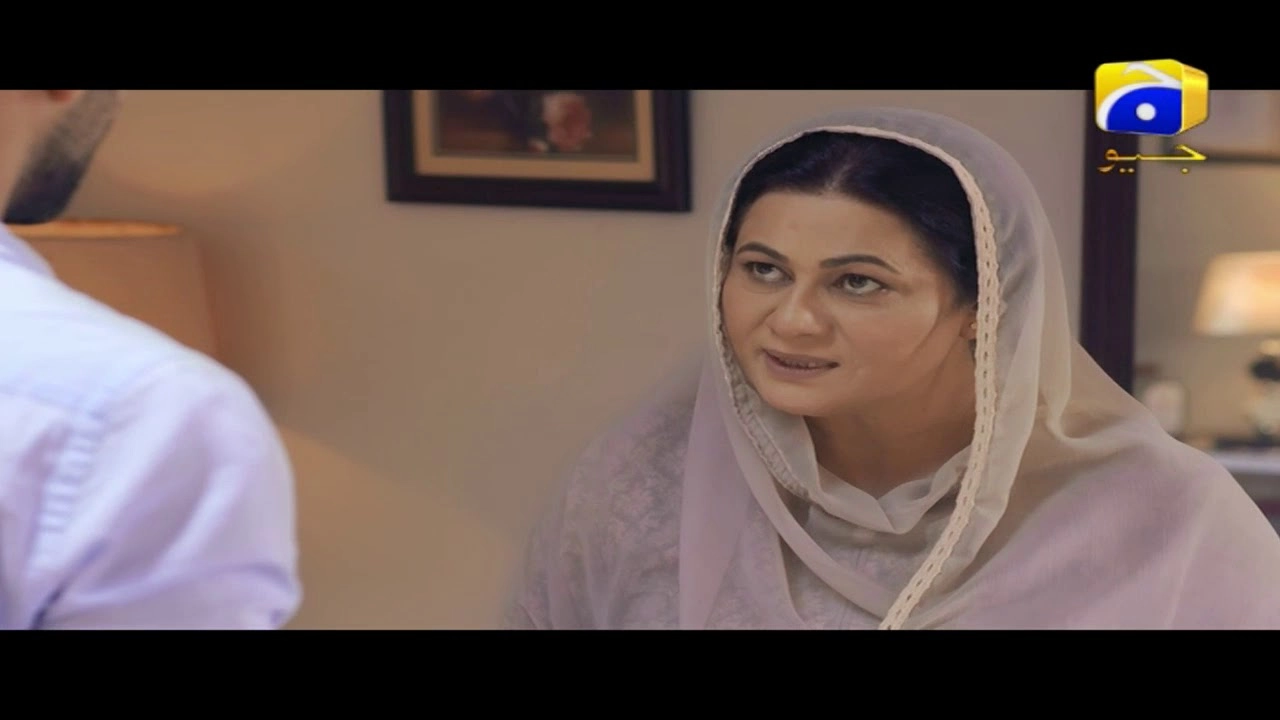
Cast Name and Role
One of the strongest aspects of Mera Rab Waris is its casting. Every actor, from the leads to the supporting cast, contributed significantly to the drama’s overall impact. The story’s emotional depth would not have been possible without the sincerity and dedication of its performers. Any comprehensive Mera Rab Waris Drama Review must highlight how each cast member brought their character to life, making the drama memorable for audiences across Pakistan and beyond.
Danish Taimoor as Haris
Danish Taimoor played the role of Haris, the male protagonist. Known for his versatile acting career, Danish brought an emotional depth to Haris’s character that few could have matched. Haris is a modern, liberal man who falls in love with Ayesha despite their vastly different worldviews. Danish’s performance captured Haris’s complexity—his love, his insecurities, his anger, and ultimately his remorse.
In many scenes, Danish showcased the vulnerability of a man torn between family expectations, personal insecurities, and his love for Ayesha. His ability to transition between affection, frustration, and regret made Haris a multi-dimensional character. In this Mera Rab Waris Drama Review, it must be acknowledged that Danish Taimoor’s portrayal played a pivotal role in keeping audiences emotionally invested throughout the drama.
Madiha Imam as Ayesha
Madiha Imam’s performance as Ayesha is widely regarded as one of the highlights of the drama. Ayesha is the heart and soul of Mera Rab Waris, and Madiha brought her to life with grace, authenticity, and emotional intelligence. Ayesha is a pious, faithful young woman who represents spiritual strength and resilience. Madiha Imam’s nuanced acting ensured that Ayesha was not just portrayed as a one-dimensional “religious” character but as a woman with emotions, fears, and immense inner strength.
Her on-screen chemistry with Danish Taimoor was one of the drama’s strongest assets. The way she balanced vulnerability with strength, forgiveness with conviction, and love with faith made Ayesha a character audiences admired and rooted for. Every Mera Rab Waris Drama Review rightly emphasizes Madiha Imam’s standout performance as one of the reasons for the drama’s lasting impact.
Mirza Zain Baig as Faizan
Mirza Zain Baig portrayed Faizan, the drama’s antagonist. Faizan’s role was crucial, as he served as the catalyst for many of the misunderstandings and conflicts between Haris and Ayesha. Zain Baig’s performance captured the manipulative, cunning, and obsessive nature of Faizan, making him a character viewers loved to hate.
His portrayal ensured that Faizan never came across as a shallow villain. Instead, he was someone driven by greed, jealousy, and desire, which made his role more realistic and threatening. A solid Mera Rab Waris Drama Review must acknowledge that Mirza Zain Baig’s performance added layers of tension and drama that kept the audience hooked.
Abid Ali as Haris’s Father
Veteran actor Abid Ali played the role of Haris’s father, bringing a sense of wisdom and gravitas to the drama. His character represented patience, understanding, and the voice of reason within Haris’s family. Abid Ali’s presence on screen added depth to family dynamics, reminding audiences of the importance of parental wisdom in guiding younger generations.
His calm demeanor stood in contrast to the heightened emotions of other characters, making his scenes memorable. In this Mera Rab Waris Drama Review, it’s important to underline how Abid Ali’s experience and screen presence enriched the drama’s emotional weight.
Seemi Pasha as Haris’s Mother
Seemi Pasha took on the role of Haris’s mother, a character torn between love for her son and her protective instincts. She often acted as a catalyst in the misunderstandings between Haris and Ayesha, reflecting the overbearing yet well-intentioned nature of many mothers in Pakistani households.
Her performance was nuanced, as she managed to portray a character who was not entirely negative but still contributed to the conflict. A Mera Rab Waris Drama Review would be incomplete without recognizing Seemi Pasha’s portrayal, which added realism to the family dynamics.
Supporting Cast
Beyond the central characters, the supporting cast of Mera Rab Waris added important shades to the narrative. Characters such as Ayesha’s family members brought authenticity to the story, grounding Ayesha’s values and providing a contrast to Haris’s more liberal household.
Actors in smaller roles, whether friends, relatives, or extended family, helped move the story forward and reflected the ripple effect of the main characters’ decisions. Ayesha’s family in particular symbolized humility, simplicity, and faith, reinforcing the themes of the drama.
Chemistry Among the Cast
What truly elevated the drama was not just individual performances but the collective chemistry among the cast. Danish Taimoor and Madiha Imam shared a believable on-screen relationship that made viewers invested in their love story. Mirza Zain Baig’s antagonism created genuine tension, while Abid Ali and Seemi Pasha provided the familial balance that grounded the drama.
In every sense, the cast worked together seamlessly, which is why Mera Rab Waris stood out compared to many other serials airing at the time. In this Mera Rab Waris Drama Review, it’s worth noting that the drama succeeded because the cast delivered performances that felt authentic, heartfelt, and deeply connected to the storyline.
Final Thoughts on Cast
In conclusion, the cast of Mera Rab Waris was perfectly chosen to represent the drama’s complex characters and themes. From the leads to the supporting roles, each actor delivered a performance that left an impression on viewers. Their collective efforts ensured that the drama’s messages of faith, loyalty, betrayal, and redemption were conveyed with sincerity and depth. Any detailed Mera Rab Waris Drama Review must emphasize that without such a strong cast, the drama would not have achieved the acclaim and emotional impact it enjoys today.
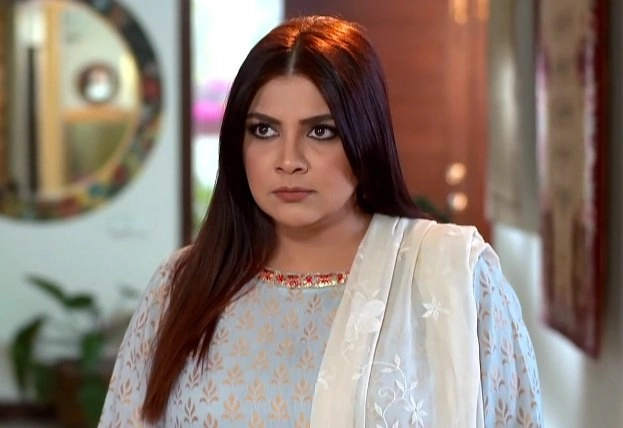
Themes and Messages
Every successful drama leaves its audience with lasting lessons, and Mera Rab Waris is no exception. Beyond its engaging love story and emotional conflicts, the serial stands out because of the powerful themes it explores. Any detailed Mera Rab Waris Drama Review must emphasize how the drama goes far deeper than surface-level entertainment, becoming a reflection of society, faith, and human behavior. Through its characters and storyline, Mera Rab Waris touches upon universal values and difficult moral dilemmas that resonate with viewers across different generations.
Faith and Spirituality
The strongest theme running throughout the drama is faith. Ayesha’s character is a living embodiment of spiritual values. She demonstrates that one can face trials, betrayal, and heartbreak without losing grip on morality and religious obligations. The drama consistently shows how her patience and reliance on God give her strength during the toughest times.
This message deeply resonated with audiences in Pakistan and abroad, many of whom saw Ayesha as an inspiring figure. In any Mera Rab Waris Drama Review, it is important to underline how the drama positioned faith not as a side aspect of life but as the central guide that shapes decisions, relationships, and destiny.
Love Beyond Differences
At its heart, Mera Rab Waris is also a love story. However, it does not present love as simple or effortless. Instead, it portrays love as a test—a bond that can only survive if it is built on trust, respect, and understanding. The marriage of Ayesha and Haris reflects this theme clearly. Their love is real, yet their differences in values and lifestyle constantly challenge their relationship.
The drama conveys the message that love alone is not enough to sustain a marriage or partnership. Shared values, trust, and patience are equally important. A proper Mera Rab Waris Drama Review must highlight this lesson because it is one of the reasons the drama stood out from typical romantic serials.
Betrayal and Its Consequences
Another powerful theme in Mera Rab Waris is betrayal. Whether it comes in the form of Faizan’s manipulations or Haris’s inability to trust Ayesha, betrayal is shown as a destructive force that shatters relationships. The drama carefully portrays how lies and deceit might temporarily succeed but ultimately lead to downfall.
By addressing betrayal, the drama delivers a universal message: dishonesty and manipulation may seem rewarding in the short term, but justice always prevails. Any Mera Rab Waris Drama Review must recognize how this theme adds moral weight to the story, reminding viewers about the importance of honesty in relationships.
Family and Social Pressures
Family plays an important role in Pakistani society, and Mera Rab Waris captures this dynamic brilliantly. Haris’s family represents the modern, often interfering household where expectations and opinions sometimes outweigh trust between husband and wife. Ayesha’s family, in contrast, represents simplicity, humility, and moral grounding.
The drama sheds light on how family pressure can either strengthen or weaken a marriage. Many viewers related to this portrayal, as it mirrored real-life situations where family interference complicates relationships. A Mera Rab Waris Drama Review must point out how this theme makes the drama relatable to a wide audience.
Greed and Jealousy
Faizan’s character symbolizes greed and jealousy—two destructive traits that drive much of the conflict. His selfish desires and manipulative schemes show how these negative emotions not only harm others but also lead to one’s own downfall. This theme acts as a cautionary message, reminding viewers of the dangers of envy and the importance of contentment.
Justice and Redemption
The drama also highlights the inevitability of justice. Wrongdoers like Faizan eventually face exposure, while those who remain patient and faithful—like Ayesha—are rewarded. Haris’s journey, too, reflects the theme of redemption. Despite his mistakes, he learns from them, realizing the value of loyalty, faith, and respect.
This theme resonates strongly because it mirrors the universal belief that justice may be delayed but not denied. Any Mera Rab Waris Drama Review should emphasize this aspect, as it gives the drama a sense of moral closure.
Women’s Strength and Resilience
Through Ayesha, the drama sends a strong message about women’s resilience. She is not portrayed as a helpless victim but as someone who stands firm in her beliefs, even when surrounded by lies and betrayal. Her quiet strength inspires not only female viewers but also families who see the importance of supporting women in their roles.
Relevance to Modern Society
Finally, the drama’s themes remain relevant in today’s world. The clash between tradition and modernity, the test of relationships in the face of external pressures, and the timeless battle between truth and lies are issues faced by individuals daily. Mera Rab Waris uses its characters to bring these issues into focus, turning the drama into more than just entertainment—it becomes social commentary.
Conclusion on Themes
In conclusion, the themes and messages of Mera Rab Waris are what make it unforgettable. From faith and loyalty to betrayal and justice, the drama delivers lessons that are universal and timeless. Any well-rounded Mera Rab Waris Drama Review must stress that these themes elevate the drama beyond conventional storytelling, making it a narrative filled with values, reflection, and moral depth. This is why the serial continues to resonate with audiences long after its final episode aired.
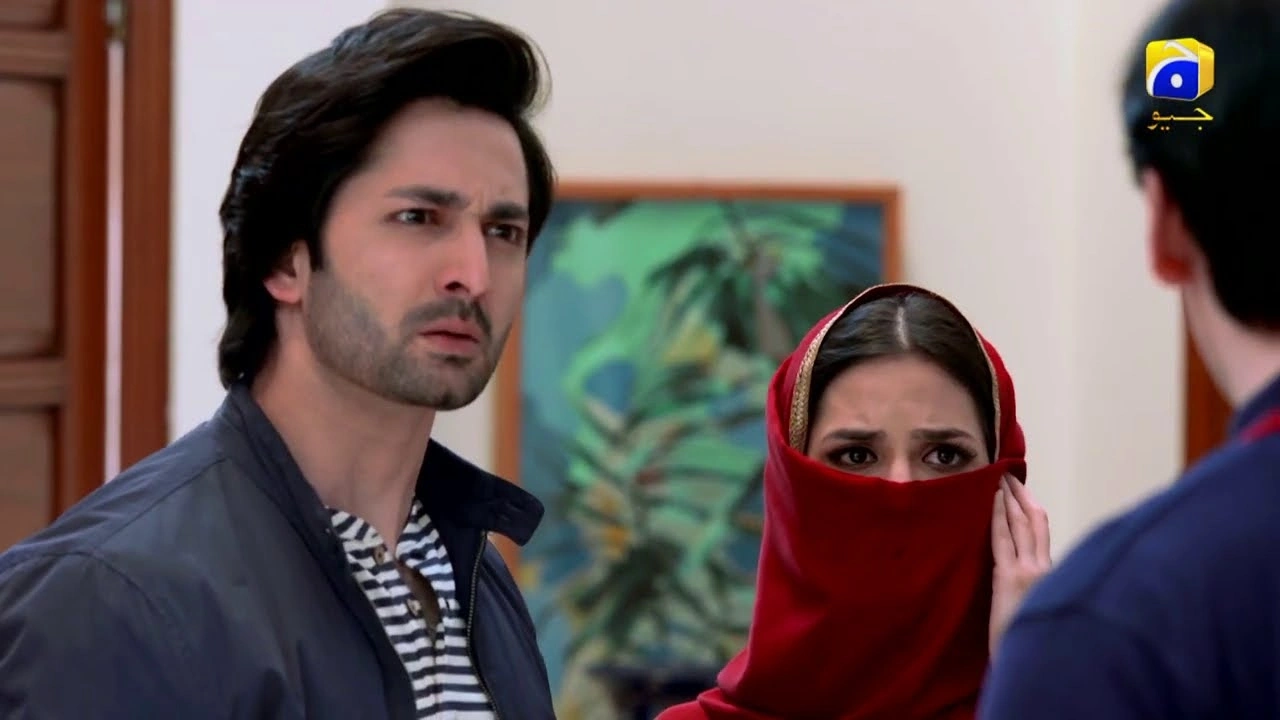
Loyalty
When discussing Mera Rab Waris, one cannot ignore the powerful theme of loyalty woven throughout the story. In fact, loyalty is one of the pillars on which the entire narrative stands. Whether it is loyalty to faith, family, or relationships, the drama uses its characters to illustrate how this value can strengthen bonds, heal wounds, and provide guidance during trials. Any in-depth Mera Rab Waris Drama Review must emphasize how loyalty is portrayed not just as a moral choice but as a way of life that defines the characters’ destinies.
Ayesha’s Loyalty to Faith
The clearest and most consistent example of loyalty in the drama is Ayesha’s unwavering devotion to her faith. From the very first episode, she is shown as someone who prioritizes her beliefs above all else. Even when faced with accusations, betrayal, or family disputes, Ayesha refuses to compromise her values. This is not stubbornness but rather a deep loyalty to the teachings that guide her life.
Her loyalty to her faith also influences her loyalty to her relationships. She loves Haris sincerely, but her love never makes her compromise her principles. Instead, she seeks to balance her duties as a wife with her devotion to God, sending a strong message about how spiritual loyalty strengthens personal bonds. In this Mera Rab Waris Drama Review, it’s worth stressing that Ayesha’s faith-driven loyalty becomes a source of inspiration for viewers, many of whom admired her strength and resolve.
Haris’s Struggle With Loyalty
Haris’s journey is one of learning the true meaning of loyalty. In the beginning, his love for Ayesha is genuine, but his loyalty falters under the weight of jealousy, manipulation, and external pressures. His inability to trust Ayesha fully shows that loyalty is more than just love—it requires faith, patience, and resilience.
As the drama progresses, Haris realizes that his lack of loyalty causes not only emotional damage but also a breakdown in trust. His redemption arc revolves around rediscovering loyalty to Ayesha and learning that true commitment means standing by your partner even when circumstances are difficult. A complete Mera Rab Waris Drama Review must underline how Haris’s struggle with loyalty makes him relatable, as it mirrors the flaws many people face in real relationships.
Loyalty in Marriage
One of the most important messages the drama conveys is that loyalty is the foundation of marriage. Ayesha and Haris’s relationship demonstrates that love cannot survive without loyalty. Ayesha’s constant loyalty to Haris, despite his doubts and moments of weakness, shows the strength of her character. In contrast, Haris’s wavering loyalty highlights the fragility of trust when loyalty is absent.
The drama makes it clear that loyalty is not passive; it requires effort, sacrifice, and patience. In a marriage, loyalty means standing by your partner during misunderstandings, defending them in front of others, and trusting their truth. Any thoughtful Mera Rab Waris Drama Review should stress how the serial highlights this lesson, especially in societies where relationships often struggle due to mistrust and outside interference.
Family Loyalty
Beyond the central couple, Mera Rab Waris also sheds light on family loyalty. Ayesha’s loyalty to her family is shown in her respect for her parents and her dedication to the values they instilled in her. Similarly, Haris’s loyalty to his family sometimes creates conflict, as he feels torn between obeying his mother and trusting his wife.
This conflict illustrates how family loyalty, while important, must not overshadow marital loyalty. The drama encourages viewers to reflect on striking a balance—remaining loyal to parents and traditions without compromising the loyalty owed to a spouse. In this Mera Rab Waris Drama Review, it’s worth noting that this message resonated deeply with audiences, many of whom recognized the challenge of balancing family obligations with marital trust.
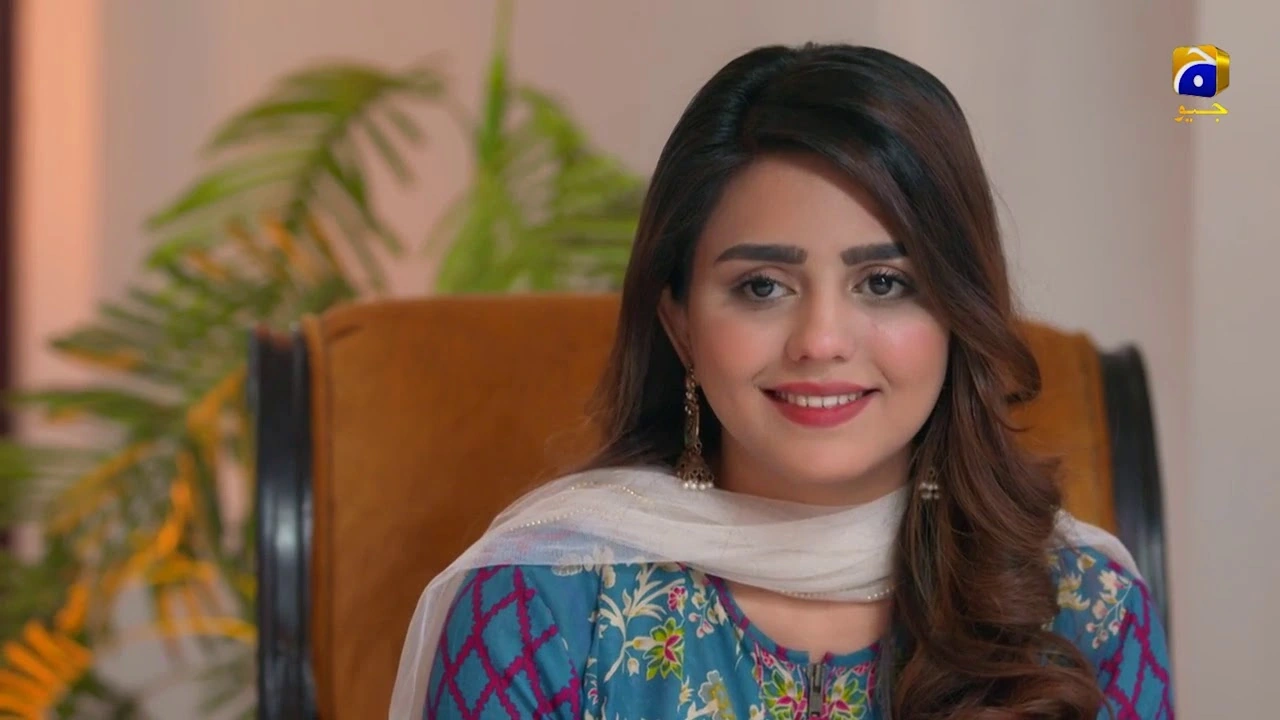
Betrayal as the Opposite of Loyalty
The drama cleverly contrasts loyalty with betrayal to show its importance. Characters like Faizan, who betray trust for personal gain, serve as warnings about the destructive consequences of disloyalty. His manipulations highlight how the absence of loyalty leads to chaos, heartbreak, and ultimately downfall.
By juxtaposing loyal characters with disloyal ones, the drama reinforces the idea that loyalty is not just a virtue but a necessity for stability in relationships and society.
Lessons for Viewers
One of the reasons Mera Rab Waris continues to be discussed is because of the life lessons it delivers. Loyalty, as depicted in the drama, is not about blind obedience but about sincerity, trust, and consistency. Whether in faith, love, or family, loyalty becomes a guiding principle that protects relationships from breaking apart.
Viewers admired Ayesha’s loyalty and were reminded that true strength often lies in remaining steadfast when it is easiest to give up. On the other hand, Haris’s flaws served as a cautionary tale, showing that when loyalty wavers, love and trust quickly unravel.
Conclusion on Loyalty
In conclusion, loyalty is one of the central themes that define Mera Rab Waris. Through Ayesha’s strength, Haris’s struggles, and the contrasts provided by other characters, the drama sends a powerful message about the importance of staying true—to faith, to family, and to loved ones. A detailed Mera Rab Waris Drama Review must highlight this theme because it not only drives the narrative but also provides viewers with lessons they can apply in their own lives. By celebrating loyalty and showing its absence, the drama offers a timeless reminder of why this value remains essential in every human relationship.
Betrayal
If loyalty is the backbone of Mera Rab Waris, then betrayal is its shadow—the destructive force that creates conflict, heartbreak, and eventual lessons for both characters and viewers. No comprehensive Mera Rab Waris Drama Review can be written without acknowledging how betrayal shapes the narrative and drives the drama’s emotional core. From misunderstandings between spouses to deliberate schemes by antagonists, betrayal is portrayed in multiple layers, showing its devastating effects on relationships and families.
Haris’s Betrayal of Trust
One of the most painful forms of betrayal in the drama comes from Haris himself. While he genuinely loves Ayesha, his inability to fully trust her leads to repeated betrayals. Instead of standing by her side during critical moments, he allows himself to be influenced by others. His doubts and accusations betray Ayesha’s loyalty, creating cracks in their marriage.
This betrayal is especially striking because it comes not from a villain but from the man Ayesha loves the most. It highlights how betrayal often hurts the deepest when it comes from those closest to us. In any thoughtful Mera Rab Waris Drama Review, Haris’s wavering faith in Ayesha must be discussed, as it reflects the fragility of relationships built on shaky trust.
Faizan’s Calculated Betrayal
While Haris’s betrayal comes from weakness, Faizan’s betrayal is deliberate and calculated. As the antagonist, Faizan embodies greed, jealousy, and manipulation. His obsession with Ayesha leads him to create misunderstandings, spread lies, and actively work to destroy her marriage.
Faizan’s betrayal is not just toward Ayesha and Haris but also toward the values of friendship and humanity. His actions remind viewers of how envy can drive people to cross moral boundaries. A Mera Rab Waris Drama Review must highlight how Faizan represents the darker side of society—individuals who betray trust for selfish desires, showing the havoc that unchecked greed and jealousy can cause.
Betrayal Within Family Dynamics
Betrayal in Mera Rab Waris is not limited to romantic relationships. It also exists within family dynamics. Haris’s mother, though not malicious, often betrays Ayesha by doubting her intentions and siding with others. Her inability to trust Ayesha’s integrity contributes to misunderstandings, proving that betrayal can also stem from overprotectiveness or misguided love.
This angle resonates with many viewers who have experienced similar situations in their own families. It shows how betrayal does not always come from malice; sometimes it arises from fear, bias, or a lack of understanding. Any Mera Rab Waris Drama Review must acknowledge this subtle but powerful depiction of betrayal within families.
The Emotional Cost of Betrayal
What makes betrayal such a compelling theme in Mera Rab Waris is the emotional toll it takes on Ayesha. Despite her loyalty and honesty, she repeatedly finds herself doubted and accused. This betrayal breaks her heart but also highlights her resilience. Instead of retaliating, Ayesha relies on her faith to endure the pain.
For viewers, these moments were some of the most difficult to watch, as they reflected real-life struggles where good people are often mistrusted or wronged. A strong Mera Rab Waris Drama Review must emphasize how the drama uses betrayal not only to create tension but also to show the strength required to rise above it.
Betrayal Versus Forgiveness
One of the drama’s most powerful messages is how betrayal and forgiveness are intertwined. Ayesha, despite the betrayals she faces, chooses forgiveness over bitterness. Her ability to forgive Haris after his repeated doubts is a testament to her character’s strength and her unwavering loyalty to her marriage.
This message resonated strongly with audiences, as it reflects the difficult balance between acknowledging betrayal and choosing forgiveness for the sake of peace and faith. In a Mera Rab Waris Drama Review, it is crucial to stress that the drama does not glorify betrayal but instead shows the power of forgiveness as a means of overcoming it.
Lessons on Betrayal
Through its multiple portrayals of betrayal, Mera Rab Waris teaches viewers several lessons. It warns against the dangers of mistrust and jealousy, showing how they can destroy even the most loving relationships. It also highlights how betrayal often comes from within families and close circles, making it harder to detect and more painful to endure.
At the same time, the drama demonstrates that betrayal is not the end of the road. Through patience, faith, and forgiveness, relationships can heal, and justice can prevail. This balance of realism and hope is one of the reasons the drama continues to resonate with viewers today.
Conclusion on Betrayal
In conclusion, betrayal is a central theme that drives much of the conflict in Mera Rab Waris. Whether it is Haris’s mistrust, Faizan’s manipulations, or the doubts from family members, betrayal is shown as a destructive force that tests loyalty and faith. Yet, the drama balances this darkness with the light of forgiveness, justice, and resilience. Any complete Mera Rab Waris Drama Review must highlight betrayal as one of the key elements that gave the drama its emotional intensity and moral depth. By portraying betrayal in its many forms, the drama delivers a timeless lesson: while betrayal can wound deeply, truth and faith always endure.
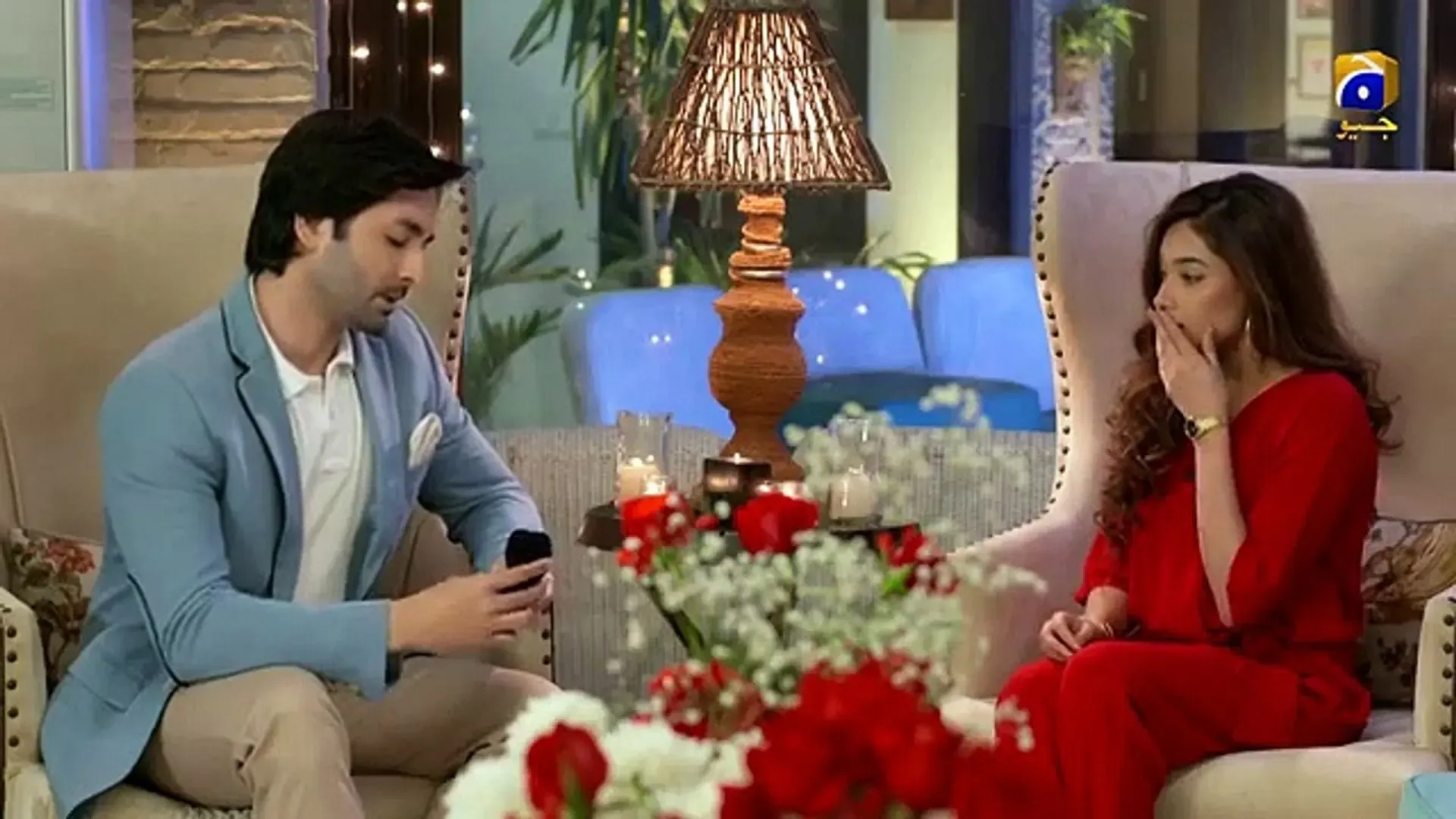
Justice
In every great story, there comes a moment when justice prevails—when truth rises above lies and wrongdoers face the consequences of their actions. Mera Rab Waris is no exception. Justice is one of the most dominant themes in the serial, giving closure to its emotional conflicts and delivering lessons that linger with viewers long after the final episode. Any in-depth Mera Rab Waris Drama Review must emphasize how the drama uses justice not only to resolve the story but also to highlight timeless moral values that are central to society and faith.
Justice as a Moral Compass
From the beginning, Mera Rab Waris sets itself apart from conventional romantic dramas by placing morality at its center. The characters are constantly being tested—whether it is Ayesha’s patience, Haris’s loyalty, or Faizan’s deceit. Each test moves toward an inevitable conclusion where justice must step in.
In this way, justice acts as a moral compass throughout the drama. Every lie, betrayal, and misunderstanding is balanced by a moment of truth and accountability. This structure ensures that viewers are reminded that while injustice may cause temporary suffering, it never lasts forever. In any Mera Rab Waris Drama Review, this moral cycle is worth stressing because it reflects real-life beliefs that justice, even if delayed, is inevitable.
Ayesha’s Vindication
The most powerful example of justice in the drama comes through Ayesha’s character. Despite facing betrayal, false accusations, and constant doubts, Ayesha never abandons her faith or her values. She chooses patience over anger and forgiveness over revenge.
Ultimately, justice finds its way to her. The truth about Faizan’s lies and manipulations is exposed, and Haris realizes the depth of his mistakes. Ayesha’s innocence and loyalty are vindicated, restoring her dignity and proving that justice rewards those who remain steadfast in their principles. In a Mera Rab Waris Drama Review, this vindication is critical to mention, as it symbolizes the triumph of truth over falsehood.
Haris’s Redemption Through Justice
Justice in the drama is not limited to punishing wrongdoers—it also offers redemption for those who realize their mistakes. Haris, for instance, is one of the most complex characters when it comes to justice. His doubts and mistrust betray Ayesha’s love, but his eventual acknowledgment of his faults shows that justice is not only about punishment but also about self-reflection and growth.
When Haris realizes the consequences of his weakness, he seeks forgiveness, showing viewers that admitting one’s mistakes is part of justice. Any balanced Mera Rab Waris Drama Review must highlight this point, as it shows that justice can also be restorative rather than purely punitive.
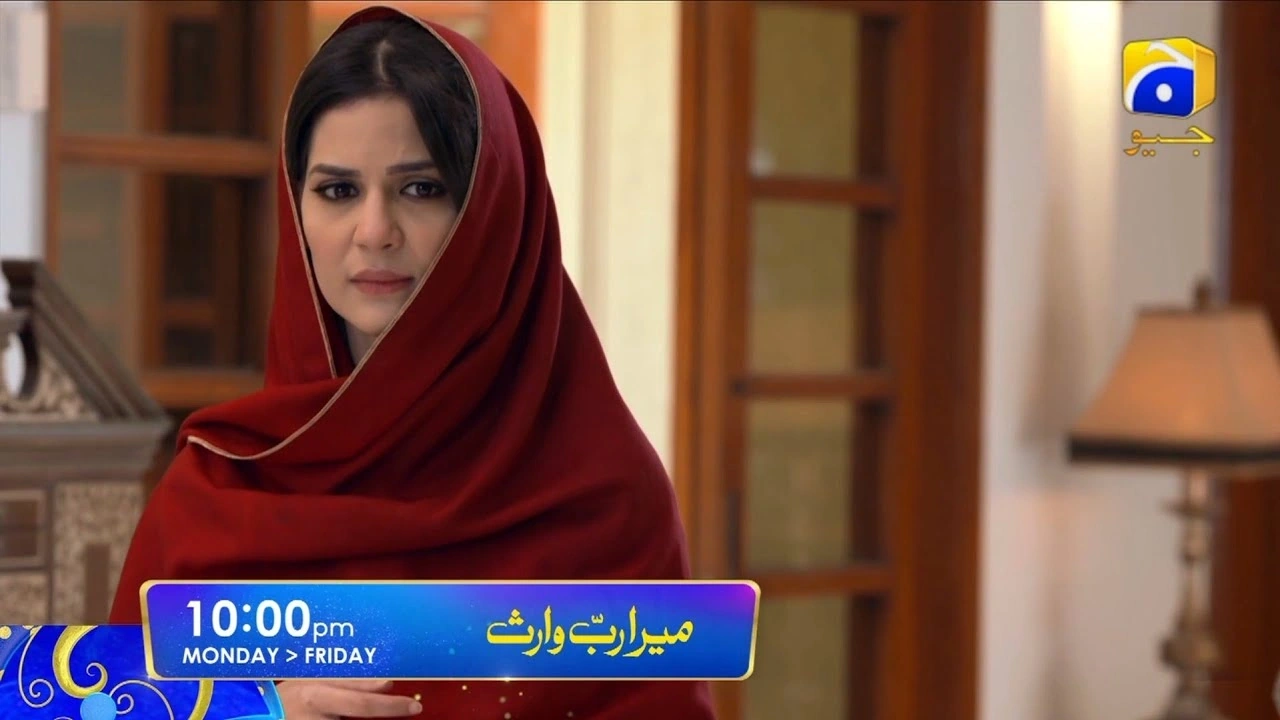
Faizan’s Downfall
On the other hand, Faizan’s storyline demonstrates the destructive consequences of unchecked greed and jealousy. His lies and schemes form the backbone of much of the drama’s conflict, but ultimately, justice catches up with him. His downfall is both dramatic and necessary, serving as a warning to those who think manipulation and betrayal can go unpunished.
Faizan’s fate is an example of poetic justice—the idea that people often reap what they sow. His betrayal leads to his own ruin, reinforcing the drama’s message that deceit may bring short-term gains but never long-term peace. A complete Mera Rab Waris Drama Review must highlight Faizan’s downfall as one of the drama’s most satisfying resolutions, as it restores balance and reaffirms moral order.
Justice Within Family Conflicts
Justice in Mera Rab Waris is not only about the central love story; it also plays out in family dynamics. Haris’s mother, who often doubted Ayesha and sided with others, eventually realizes her mistakes. Though she is not an antagonist in the traditional sense, her behavior reflects the biases and unfair judgments that many women face in families. The drama carefully shows how time and truth correct these wrongs, offering justice in subtle but meaningful ways.
This aspect of justice makes the story relatable, as it mirrors situations in many households where misunderstandings and biases are eventually cleared. A Mera Rab Waris Drama Review should note how the drama highlights justice not only in dramatic confrontations but also in quieter, everyday family relationships.
Spiritual Justice
Perhaps the most profound element of justice in the drama is its spiritual dimension. Ayesha repeatedly demonstrates her belief that God’s justice is greater than any human judgment. Her patience and reliance on faith remind viewers that ultimate justice lies in divine hands.
This message deeply resonated with audiences because it reflects cultural and religious values. It teaches viewers that while human justice systems may falter, spiritual justice is certain and cannot be escaped. In a Mera Rab Waris Drama Review, this spiritual element must be emphasized, as it is one of the reasons the drama holds such a powerful emotional and moral appeal.
Audience Takeaway on Justice
The portrayal of justice in Mera Rab Waris left a lasting impact on audiences. Viewers felt satisfaction in seeing truth prevail and wrongdoers punished. At the same time, they admired the balance of justice and mercy, especially in Ayesha’s ability to forgive and Haris’s chance at redemption.
This combination of accountability and forgiveness made the drama realistic yet hopeful, teaching viewers that justice does not always have to be harsh—it can also be healing.
Conclusion on Justice
In conclusion, justice is a central theme in Mera Rab Waris that provides closure to its conflicts and reinforces its moral foundation. From Ayesha’s vindication and Haris’s redemption to Faizan’s downfall and the correction of family biases, the drama shows justice in multiple dimensions—personal, social, and spiritual. Any detailed Mera Rab Waris Drama Review must stress that justice is not only about punishing wrongdoers but also about restoring balance, dignity, and truth. By highlighting the inevitability of justice, the drama delivers a timeless reminder that patience, faith, and honesty always lead to victory.
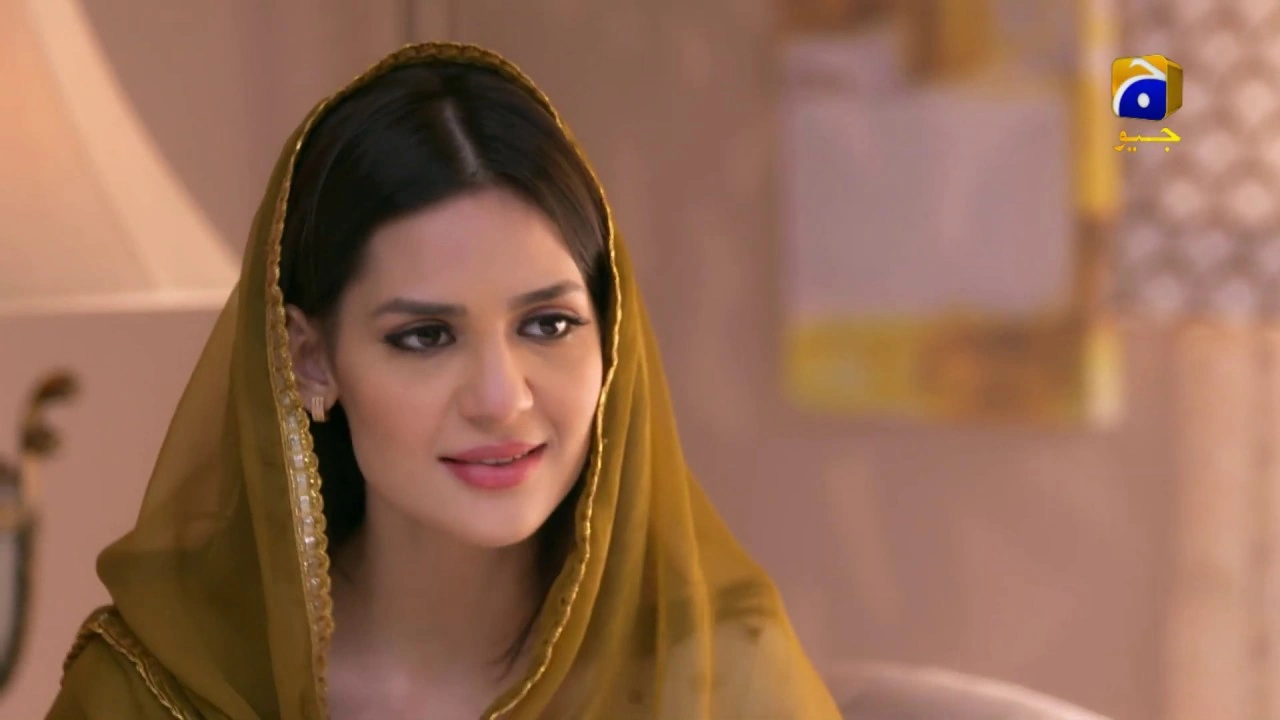
Greed and Its Consequences
Among the many themes woven into Mera Rab Waris, greed stands out as one of the most destructive. It is the silent poison that corrupts relationships, fuels betrayal, and disrupts the balance of justice. No comprehensive Mera Rab Waris Drama Review would be complete without addressing how greed drives several characters’ actions and how the drama carefully illustrates its devastating consequences. From Faizan’s obsessive desires to subtle family conflicts, greed is portrayed not just as a personal flaw but as a societal issue that ruins harmony and peace.
Faizan: The Face of Greed
Faizan is the clearest embodiment of greed in the drama. His unrelenting obsession with Ayesha becomes the root of much of the turmoil. Instead of respecting her marriage with Haris, he schemes to manipulate situations for his benefit. His greed blinds him to morality, friendship, and even humanity, making him one of the most despised antagonists in Pakistani television.
Faizan’s character shows how greed often begins as desire but quickly grows into obsession. In the process, it destroys not only the lives of those targeted but also the very person consumed by it. For any Mera Rab Waris Drama Review, Faizan’s storyline is a prime example of how greed consumes an individual from within, leading to inevitable downfall.
Haris’s Struggle with Emotional Greed
While Faizan represents blatant greed, Haris too, in subtle ways, grapples with it. His desire to control situations, demand unwavering loyalty, and constantly test Ayesha’s patience can be seen as a form of emotional greed. Though not malicious, this selfishness reveals how greed isn’t always about material gain—it can manifest as the need for power, control, or dominance in relationships.
This nuance is what makes Mera Rab Waris so powerful. The drama doesn’t paint greed in black and white; instead, it explores how even well-meaning individuals can fall prey to it. A good Mera Rab Waris Drama Review must stress this complexity because it makes the story relatable to real-life relationships where emotional greed often causes cracks.
Family Dynamics and Greed
The drama also touches on greed within family structures. At times, misunderstandings arise not just from jealousy but also from the desire for control, influence, or superiority. Haris’s mother, for example, is not greedy for wealth, but her inability to accept Ayesha fully into the family reflects a different form of greed—the desire to maintain control over her son’s life.
This subtle depiction reflects many real households where greed is not about money but about power, pride, or authority. A thoughtful Mera Rab Waris Drama Review must highlight how the serial brilliantly captures this nuanced aspect of human behavior.
The Social Commentary on Greed
Beyond individual characters, Mera Rab Waris uses greed to comment on broader social issues. Faizan’s manipulations reflect how greed in society often leads to exploitation, lies, and broken trust. The drama mirrors real-life scenarios where people pursue selfish gains without considering the harm inflicted on others.
By weaving this message into its narrative, the drama becomes more than entertainment—it serves as a cautionary tale. In a complete Mera Rab Waris Drama Review, this broader commentary should be emphasized, as it shows how the drama resonates with everyday struggles faced by viewers.
Consequences of Greed
The consequences of greed in Mera Rab Waris are severe and irreversible. Faizan, despite his clever schemes, faces downfall and humiliation. His greed not only destroys his own peace but also leaves him isolated and despised. This is the ultimate lesson: greed may bring temporary satisfaction, but it guarantees long-term ruin.
Even for Haris, his subtle emotional greed causes cracks in his marriage. Though he redeems himself later, the pain and damage caused by his doubts linger. These consequences highlight that greed, whether obvious or hidden, leaves scars on relationships and individuals alike.
A solid Mera Rab Waris Drama Review must make clear that the drama portrays greed not just as a character flaw but as a self-destructive force.
Ayesha as the Antidote to Greed
In contrast to greedy characters, Ayesha represents purity, patience, and selflessness. She never seeks material gain or control; instead, she relies on her faith and values. Her calmness and unwavering principles serve as a mirror to those consumed by greed, showing viewers the stark difference between a life rooted in faith versus one ruined by desire.
This contrast between Ayesha and Faizan strengthens the drama’s moral message: while greed leads to destruction, humility and patience lead to peace and justice. In any Mera Rab Waris Drama Review, this juxtaposition must be highlighted, as it is one of the key storytelling strengths of the serial.
Audience Lessons on Greed
One of the reasons Mera Rab Waris gained immense popularity is because it didn’t shy away from showing the real consequences of greed. Audiences could relate to Faizan’s manipulations, Haris’s selfishness, and the struggles within family dynamics. They also saw the dangers of letting greed go unchecked.
The drama leaves viewers with an important lesson: greed is never worth the cost. Whether it is the loss of love, trust, or dignity, the consequences far outweigh any temporary satisfaction. A complete Mera Rab Waris Drama Review must underscore this takeaway, as it reflects the drama’s ultimate purpose—to teach as well as to entertain.
Conclusion on Greed and Its Consequences
In conclusion, greed in Mera Rab Waris is portrayed as a destructive force that ruins relationships, corrupts values, and leads to inevitable downfall. Through Faizan’s obsession, Haris’s emotional struggles, and family conflicts, the drama explores the many forms greed can take. But it also provides hope through Ayesha’s character, showing that patience, faith, and selflessness are the ultimate antidotes. Any thorough Mera Rab Waris Drama Review must emphasize that the drama’s enduring relevance lies in its bold depiction of greed and its painful consequences—a theme that resonates across time, culture, and society.
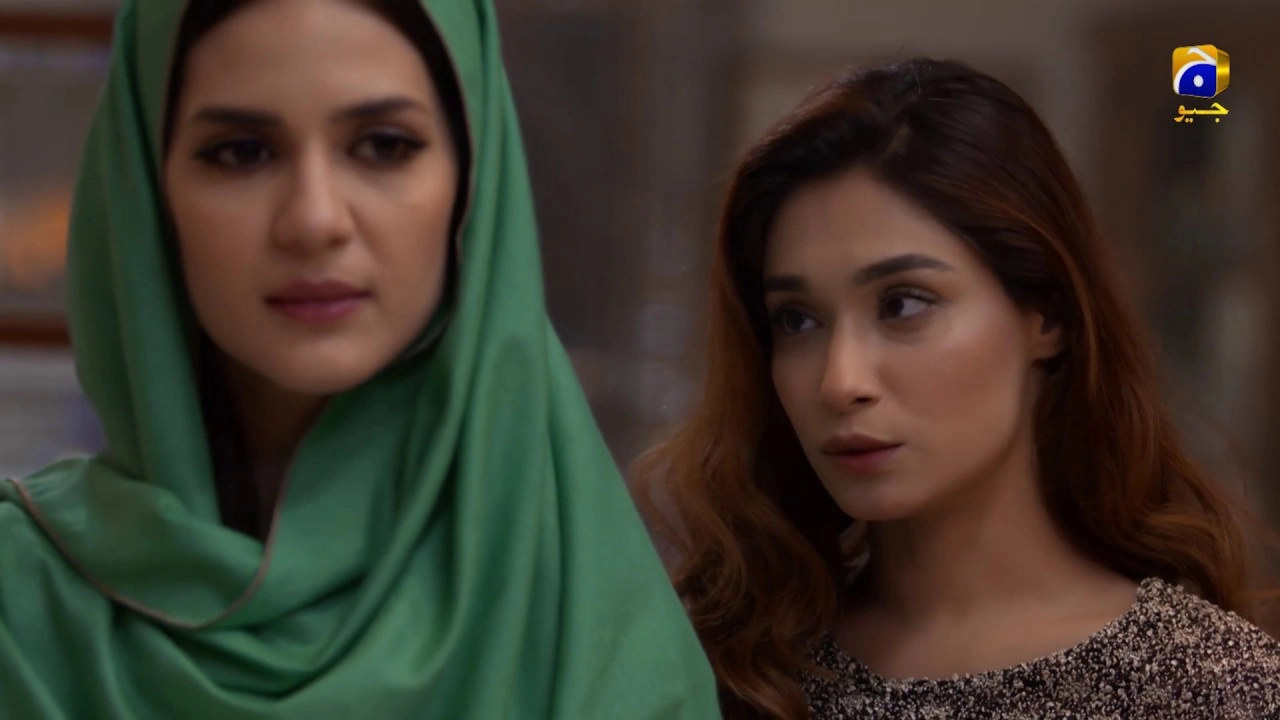
Family Dynamics
At its heart, Mera Rab Waris is not just a love story—it is a layered exploration of family relationships, misunderstandings, and the struggles between tradition and modernity. Family plays a central role in shaping the drama’s conflicts and resolutions, making it a vital element to discuss in any comprehensive Mera Rab Waris Drama Review. The serial does not present family life as perfect or idealized; instead, it reflects the complexities, emotional tensions, and cultural realities that Pakistani households often face. This honest portrayal is one of the reasons the drama resonated so deeply with audiences.
Haris’s Family: A Source of Tension
Haris’s family, particularly his mother, is one of the central sources of conflict in the drama. While Haris initially adores Ayesha and values her principles, his family often views her through a critical lens. His mother struggles to accept Ayesha’s traditional mindset and her strong religious devotion. This generational and ideological clash creates cracks in Haris and Ayesha’s relationship, illustrating how family pressures can strain even the strongest marriages.
In a detailed Mera Rab Waris Drama Review, it is important to highlight this aspect because it mirrors real-life scenarios where in-laws interfere in marriages, either due to control, ego, or misunderstandings. The drama skillfully portrays how love is not just about two individuals but about the families they belong to.
Ayesha’s Position in the Family
Ayesha, as the daughter-in-law, faces enormous challenges in her new family. Her values and choices are constantly questioned, and she becomes a victim of suspicion due to Faizan’s manipulations. Despite this, she remains steadfast in her faith and patient in her responses. This patience, though painful, eventually wins her respect.
Her journey is symbolic of the struggles many women face in joint-family systems. A thorough Mera Rab Waris Drama Review should note that Ayesha’s resilience is not only personal but also reflective of broader societal expectations from women in traditional households.
The Clash of Ideologies
One of the most compelling elements of the family dynamics in Mera Rab Waris is the ideological clash between tradition and modernity. Ayesha represents a religiously grounded, modest outlook, while Haris’s family leans toward a more modern lifestyle. This clash doesn’t just create conflict between Ayesha and her in-laws but also forces Haris to choose between the woman he loves and the expectations of his family.
The drama does not present either side as inherently right or wrong but shows the difficulties that arise when two opposing worldviews collide under one roof. For a nuanced Mera Rab Waris Drama Review, this ideological tension should be emphasized as one of the drama’s strengths in reflecting real cultural struggles.
Haris Caught in the Middle
Haris’s character embodies the classic struggle of a man caught between his wife and his family. While he loves Ayesha deeply, he is influenced by his mother’s opinions and Faizan’s lies, leading him to doubt Ayesha at critical moments. His inability to balance his loyalty toward both sides reveals how family dynamics often test a man’s integrity and wisdom.
For audiences, this conflict was relatable and heartbreaking. Many viewers saw Haris as flawed yet human, making his eventual redemption more impactful. Any Mera Rab Waris Drama Review should highlight how Haris’s role demonstrates the emotional cost of family conflicts on marital relationships.
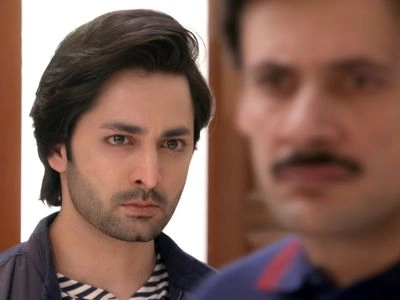
The Role of Manipulation
Family dynamics in Mera Rab Waris are further complicated by Faizan’s constant manipulation. By exploiting the weaknesses within the family, he creates rifts that nearly destroy Ayesha and Haris’s marriage. His interference shows how external influences can destabilize families if members fail to trust and support one another.
This layer of manipulation adds depth to the family portrayal, showing that conflicts are not always natural but sometimes fueled by jealousy and greed. For a detailed Mera Rab Waris Drama Review, this is an essential point because it reflects how fragile trust can be within families.
Redemption and Reconciliation
Despite the turmoil, the drama also emphasizes reconciliation. Haris’s mother eventually realizes Ayesha’s sincerity, and misunderstandings are cleared. This transformation provides emotional relief to viewers who have witnessed Ayesha’s suffering. It highlights the possibility of growth and acceptance within families when truth is finally recognized.
This reconciliation was important for the drama’s overall resolution, as it restored balance and offered a hopeful conclusion. A thorough Mera Rab Waris Drama Review should stress this ending because it ensures the drama does not leave viewers in despair but instead shows that families can heal after conflicts.
Social Reflection
The portrayal of family dynamics in Mera Rab Waris is more than just entertainment—it serves as a mirror to society. Many Pakistani households experience similar struggles: mother-in-law conflicts, interference from relatives, ideological clashes, and the constant test of loyalty within marriages. By showing these realities on screen, the drama created conversations in living rooms across the country.
This social relevance is one of the reasons for the drama’s popularity and critical acclaim. Any in-depth Mera Rab Waris Drama Review must recognize how the drama used family dynamics not just to create tension but also to spark reflection among viewers.
Audience Takeaway
Audiences found the family dynamics both frustrating and relatable. Many sympathized with Ayesha, admired her patience, and felt anger toward Haris’s weaknesses. Others reflected on their own family situations, realizing how common such conflicts are. This emotional connection helped the drama achieve its strong viewership and cultural impact.
Conclusion on Family Dynamics
In conclusion, family dynamics in Mera Rab Waris serve as the backbone of the narrative. From Haris’s struggle between his wife and mother to Ayesha’s resilience as a daughter-in-law, the drama realistically portrays the emotional complexities of family life. Manipulation, ideological clashes, and eventual reconciliation all contribute to a layered and relatable storyline. A complete Mera Rab Waris Drama Review must emphasize that the portrayal of family is not only central to the plot but also reflective of real-life cultural struggles, making the drama both engaging and socially relevant.
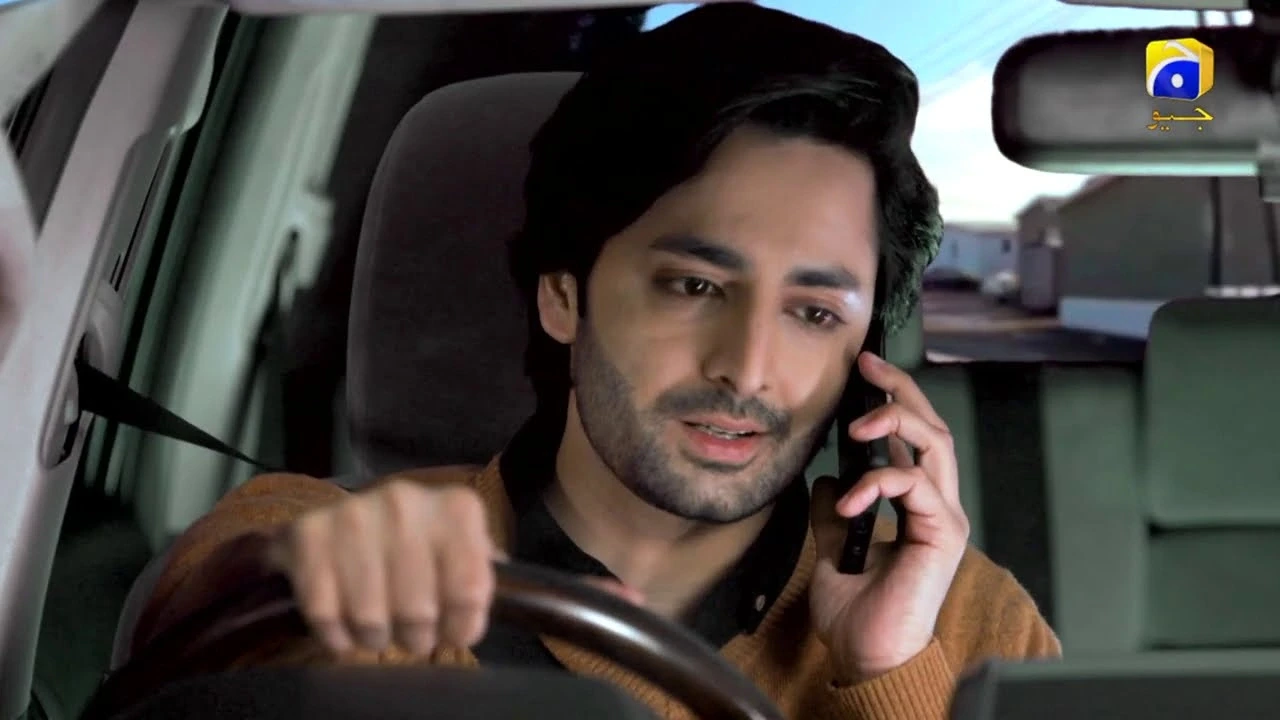
Direction and Cinematography
When reviewing Mera Rab Waris, it is impossible to overlook the brilliant direction and thoughtful cinematography that elevated the storytelling. While the drama is remembered for its powerful performances and emotionally charged narrative, its direction and visual presentation played a key role in engaging audiences. Any complete Mera Rab Waris Drama Review must dedicate attention to how the director’s vision and the camera’s lens worked together to create a drama that felt both intimate and cinematic.
Vision of the Director
The drama was directed with a balance of subtlety and intensity. The director ensured that the story’s emotional weight was not overshadowed by unnecessary dramatics. Instead, focus was placed on character interactions, body language, and the small details that revealed the internal struggles of the characters.
For example, scenes between Ayesha and Haris were carefully staged to highlight their shifting dynamics—sometimes showing closeness, sometimes distance, depending on the progression of misunderstandings. This deliberate approach made viewers feel the tension in their marriage and empathize with their struggles.
In a well-rounded Mera Rab Waris Drama Review, one must acknowledge that the director’s strength lay in portraying emotions in a raw yet controlled manner, avoiding melodrama while still delivering powerful impact.
Use of Cinematography to Convey Emotion
Cinematography in Mera Rab Waris was not flashy but meaningful. Camera angles, lighting, and framing were used to amplify emotions rather than distract from them. For instance, Ayesha was often shown in soft lighting, symbolizing her innocence and purity, while Faizan’s scenes carried darker tones that hinted at his inner greed and obsession.
Close-up shots were heavily relied upon to capture the pain, doubt, and vulnerability of the characters. Ayesha’s tears, Haris’s conflicted expressions, and Faizan’s scheming glances were all brought to life through the careful use of close framing. These choices made viewers feel like they were part of the characters’ personal journeys.
A thorough Mera Rab Waris Drama Review should emphasize how the cinematography gave the drama its emotional resonance, making even simple scenes unforgettable.
Balance Between Realism and Aesthetics
One of the notable achievements of the direction and cinematography was the balance between realism and visual appeal. The sets and locations were not overly glamorous but felt authentic, resembling real Pakistani households and workplaces. This helped the drama connect with viewers on a personal level, as the environments mirrored their own daily realities.
At the same time, the drama did not compromise on aesthetics. Scenes were carefully composed, ensuring visual harmony without breaking the realism. For example, Ayesha’s modest attire, combined with simple yet elegant background settings, made her character shine without the need for extravagant visuals.
In any Mera Rab Waris Drama Review, this balance should be praised, as it is one of the reasons why the drama felt relatable yet engaging.
Symbolism Through Visuals
The direction also cleverly used visual symbolism. For instance, Ayesha was often framed with Quranic verses or in prayer, highlighting her faith as her core strength. Haris, on the other hand, was frequently shown in conflicted spaces—between his mother and his wife—reflecting his divided loyalties. Faizan’s presence was usually marked with darker backdrops or sharp contrasts, visually reinforcing his role as an antagonist.
These visual cues subtly guided viewers without needing excessive dialogue, proving the director’s skill in storytelling through imagery. A thoughtful Mera Rab Waris Drama Review should highlight these symbolic choices as they add depth to the viewing experience.
Pacing and Scene Construction
Direction and cinematography were also crucial in maintaining the pacing of the drama. Slow pans during emotional confrontations allowed the audience to fully absorb the tension, while quicker cuts during moments of manipulation or revelation heightened suspense.
Scenes were rarely overcrowded; instead, the focus remained on a few central characters, ensuring that the audience’s attention was directed where it mattered most. This minimalist yet effective approach gave the drama its gripping intensity.
For anyone writing a Mera Rab Waris Drama Review, noting this careful construction of scenes is essential to appreciating the artistry behind the storytelling.
Strength of Performances Enhanced by Direction
Another strength of the direction was the way it brought out the best in the cast. Ayesha’s calmness, Haris’s emotional turmoil, and Faizan’s cunning were all magnified through thoughtful blocking, pauses, and expressions. The director gave the actors space to perform, avoiding unnecessary background noise or distractions.
In key moments, silence was used as a powerful tool—allowing expressions and unspoken emotions to communicate more than dialogue ever could. This restraint is a testament to the director’s confidence in the actors and the script.
Audience Reception of the Visuals
Viewers consistently praised the drama not just for its story but for its presentation. Many noted how the visuals enhanced the emotional impact, making scenes more memorable. For instance, Ayesha’s prayer scenes left a deep impression because of the respectful way they were filmed, while confrontational sequences were gripping due to the intensity of the framing.
This positive audience reception underscores the importance of direction and cinematography in the drama’s overall success. Any detailed Mera Rab Waris Drama Review should recognize how these technical elements contributed to the emotional connection audiences felt.
Conclusion on Direction and Cinematography
In conclusion, the direction and cinematography of Mera Rab Waris were instrumental in shaping its impact. From symbolic visuals to emotionally charged close-ups, the technical choices enhanced the story without overshadowing it. The director’s vision created a balance between realism and aesthetics, making the drama both relatable and visually engaging. For anyone writing a complete Mera Rab Waris Drama Review, it is vital to acknowledge how these elements worked hand in hand to transform a compelling script into a memorable television experience.
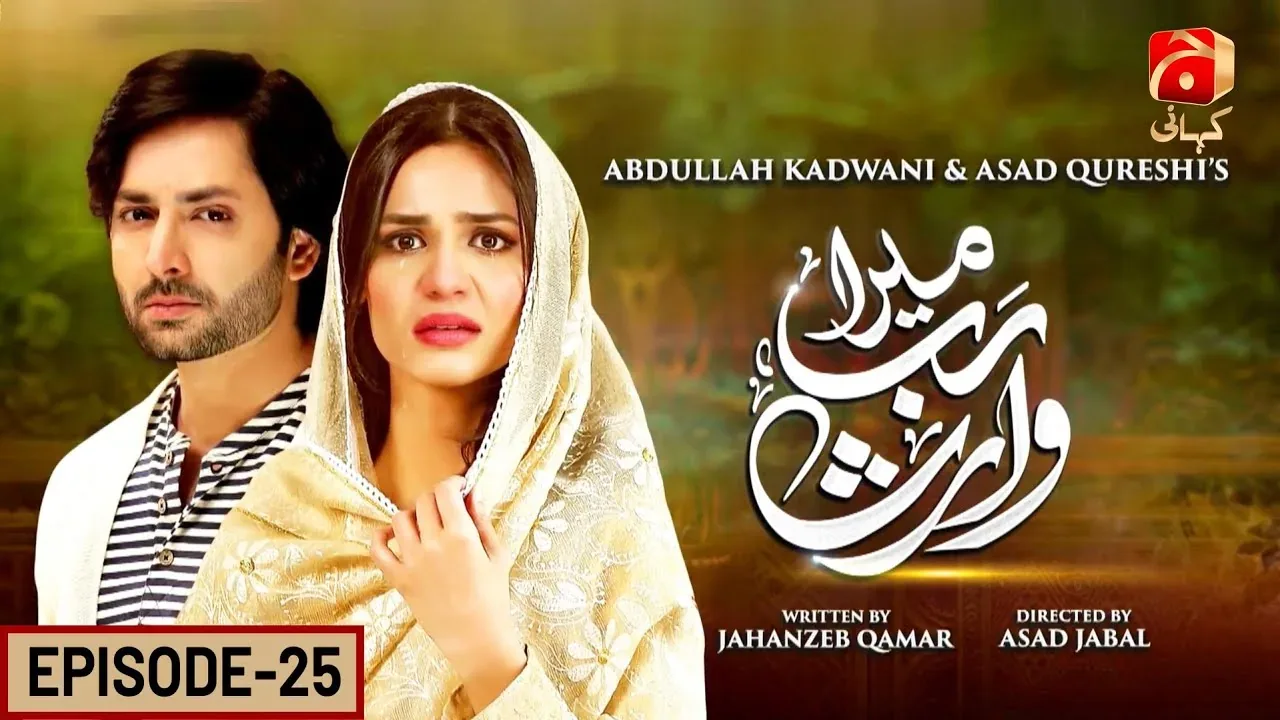
Pacing and Plot Twists
When analyzing Mera Rab Waris, one of the standout aspects is the way the drama managed its pacing and incorporated unexpected plot twists to maintain audience interest. In long-running Pakistani serials, pacing can often become a weakness—either dragging storylines unnecessarily or rushing important developments. However, in this case, the drama handled its rhythm with remarkable balance, weaving in surprises that kept viewers glued to their screens. A strong Mera Rab Waris Drama Review must highlight how the pacing and plot twists contributed to the drama’s success.
Steady Build-Up of the Narrative
The drama did not begin with unnecessary melodrama. Instead, it opened with a slow but steady introduction to the characters, their beliefs, and the setting in which the story unfolds. This gradual pace allowed the audience to connect with Ayesha, understand Haris’s charm, and recognize Faizan’s underlying ambitions. By avoiding an overly rushed beginning, the story laid a strong foundation for the emotional conflicts that followed.
This pacing gave viewers time to develop empathy for the main characters, which later amplified the impact of betrayals, misunderstandings, and reconciliations. In any Mera Rab Waris Drama Review, the effectiveness of this measured introduction deserves appreciation.
Balanced Emotional Arcs
Unlike some dramas that linger too long on a single emotional note, Mera Rab Waris successfully shifted between romance, family conflict, and moral dilemmas at just the right moments. Romantic moments between Ayesha and Haris often came right after tense confrontations, providing relief and keeping the audience engaged without overwhelming them.
For example, just when viewers began to feel frustrated with Haris’s doubts, a tender scene would remind them of his genuine love for Ayesha. This balance in emotional pacing is one of the reasons the drama never felt monotonous. A comprehensive Mera Rab Waris Drama Review must note how the writers and director timed these emotional arcs to maximize engagement.
Introduction of Suspense Through Faizan
A major element of pacing came through the gradual revelation of Faizan’s schemes. Instead of portraying him as openly villainous from the beginning, the drama slowly exposed his manipulative side. This kept viewers intrigued, eager to see how far his betrayal would go and whether Ayesha and Haris would discover his true intentions.
Faizan’s role was a central driver of suspense. Each time he appeared to be cornered, he managed to twist the situation in his favor, extending the conflict without making it repetitive. This calculated reveal of his villainy gave the drama its edge and made his downfall all the more satisfying. A thoughtful Mera Rab Waris Drama Review must emphasize how Faizan’s storyline sustained suspense across episodes.
Unexpected Plot Twists
One of the reasons Mera Rab Waris captured so much attention was its use of unexpected twists. Just when the audience believed reconciliation was on the horizon, a new misunderstanding would surface—often fueled by Faizan’s lies. Haris’s moments of doubt toward Ayesha provided gut-wrenching plot turns, especially since viewers were already emotionally invested in her innocence.
Another key twist was the shifting perception of Haris’s family. While they initially stood firmly against Ayesha, small revelations gradually softened their stance. The unpredictability of who would stand with Ayesha and who would oppose her added layers of intrigue to the narrative.
For a Mera Rab Waris Drama Review, these twists are critical to mention because they kept the drama from becoming predictable, a common issue in long Pakistani serials.
Timing of Climactic Moments
The drama excelled in timing its climactic reveals. For example, the point where Haris finally realized Faizan’s deceit was not rushed—it was carefully built up through a series of smaller revelations, leading to a highly satisfying climax.
Similarly, the emotional peaks—such as Ayesha’s moments of prayer or her confrontations with Haris—were strategically placed at points when audience frustration was at its highest. This ensured maximum emotional payoff and kept the viewers deeply invested.
Any in-depth Mera Rab Waris Drama Review must recognize that the timing of these climactic moments was key to the drama’s ability to maintain suspense and emotional engagement across its run.
Avoidance of Dragging
One of the most commendable aspects of the pacing in Mera Rab Waris was its avoidance of dragging the story unnecessarily. Many dramas lose momentum by stretching a single conflict across multiple episodes, but here, even repeated misunderstandings felt fresh because of new angles introduced by the writers.
Each episode offered either a small revelation, a new emotional moment, or a shift in relationships, ensuring that viewers always had something to anticipate. This is an achievement worth mentioning in any Mera Rab Waris Drama Review, as pacing often determines whether audiences remain loyal or abandon a show midway.
Audience Experience of Twists and Pacing
For audiences, the pacing and plot twists were a rollercoaster. Viewers felt frustration, hope, anger, and relief in cycles, which made the drama addictive. Many fans shared how they eagerly awaited each episode, unable to predict what would happen next. The emotional ups and downs were a deliberate product of smart pacing, making the drama memorable long after it ended.
Conclusion on Pacing and Twists
In conclusion, the pacing and plot twists in Mera Rab Waris were instrumental in making it a gripping watch. From the slow build-up of Ayesha and Haris’s relationship to the suspense surrounding Faizan’s schemes, the drama struck a perfect balance between romance, conflict, and revelation. Unexpected twists kept it unpredictable, while careful timing ensured emotional engagement at every stage. For a complete Mera Rab Waris Drama Review, it is essential to highlight how the drama’s well-managed rhythm and cleverly placed surprises contributed to its status as one of the most talked-about serials of its time.
Strengths and Weaknesses
Every drama has its strengths and weaknesses, and Mera Rab Waris is no exception. What makes a review truly balanced is the ability to highlight both the successes and shortcomings with fairness. In this section of the Mera Rab Waris Drama Review, we’ll explore the aspects that made the drama stand out as a powerful production, as well as the areas where it could have improved. By examining both sides, we can understand why the serial resonated so strongly with audiences and where it might have fallen short of perfection.
Strengths
1. Strong Storyline Rooted in Faith and Values
One of the most significant strengths of Mera Rab Waris lies in its story. Unlike many dramas that revolve solely around materialism, love triangles, or unnecessary glamour, this serial grounded its plot in faith, loyalty, and morality. The clash between spiritual purity and worldly greed gave the show depth and allowed it to stand out in the crowded landscape of Pakistani television.
For SEO purposes in a Mera Rab Waris Drama Review, this point cannot be overstated. The drama’s faith-based theme appealed to audiences looking for meaningful content, making it memorable beyond its runtime.
2. Powerful Performances by the Cast
Another major strength was the stellar cast. Ayesha’s role, portrayed with grace and innocence, became the emotional heart of the drama. Haris’s performance conveyed both charm and vulnerability, while Faizan brought the perfect mix of cunning and arrogance. Supporting actors also held their ground, ensuring that every scene felt complete.
In any Mera Rab Waris Drama Review, one must credit the performances for elevating the script. Even moments that might have otherwise seemed ordinary became impactful due to the actors’ dedication.
3. Direction and Cinematography
As highlighted earlier, the direction and cinematography were significant assets. Emotional close-ups, realistic settings, and symbolic framing gave the drama a polished feel. The director’s restraint in avoiding over-the-top melodrama allowed the story to shine.
This strength is important to acknowledge in a Mera Rab Waris Drama Review, as visuals often determine whether audiences emotionally connect with a story or not.
4. Balanced Pacing and Plot Twists
The drama’s ability to maintain suspense while avoiding unnecessary dragging was another highlight. Each episode moved the story forward while offering either a revelation or a shift in relationships. The balance between romantic interludes and tense confrontations ensured variety.
Such pacing is rare in long Pakistani dramas, and it’s a strength worth celebrating in this Mera Rab Waris Drama Review.
5. Relatability of Themes
Themes of loyalty, betrayal, family conflict, and the consequences of greed are universal. Viewers saw parts of their own lives reflected in Ayesha’s struggles and Haris’s dilemmas. This relatability was one of the biggest reasons for the drama’s popularity.
For SEO impact, repeatedly mentioning that this Mera Rab Waris Drama Review highlights relatable themes will help audiences searching for content that connects emotionally.
Weaknesses
1. Repeated Misunderstandings
One of the criticisms directed at the drama was its reliance on repeated misunderstandings between Haris and Ayesha. While misunderstandings are a staple of dramatic storytelling, some viewers felt that the repetition stretched believability. At times, Haris’s quickness to doubt Ayesha seemed forced, undermining the strength of his character.
A balanced Mera Rab Waris Drama Review should note that while this kept suspense alive, it occasionally tested audience patience.
2. Predictability in Certain Subplots
Although the central conflict had surprises, some side storylines followed predictable patterns. For example, the dynamics with Haris’s family often echoed familiar tropes found in many dramas. While not entirely detrimental, these predictable elements slightly weakened the otherwise strong narrative.
3. Underdeveloped Supporting Characters
Another weakness was that some supporting characters did not receive enough depth. While the main trio was well-developed, certain secondary figures felt one-dimensional, serving only to advance the plot rather than adding richness to the story world.
A Mera Rab Waris Drama Review must acknowledge this, as stronger secondary arcs could have given the drama even more layers.
4. Occasional Overemphasis on Moral Messaging
While the faith-based theme was a strength, some critics argued that certain episodes leaned too heavily on moral messaging, slowing down the pace. These moments risked feeling preachy, which could alienate viewers looking for a smoother narrative flow.
In fairness, others appreciated these moments for their depth, but a well-rounded Mera Rab Waris Drama Review should recognize the potential drawback.
5. Resolution Felt Slightly Rushed
Toward the end, some viewers felt the resolution of conflicts was wrapped up too quickly compared to the careful build-up. After investing so deeply in Ayesha’s struggles and Haris’s transformation, the ending could have benefited from more emotional closure. While not unsatisfying, it left some fans wishing for additional episodes.
Balancing the Strengths and Weaknesses
What makes Mera Rab Waris a noteworthy drama is that its strengths far outweigh its weaknesses. The powerful storyline, stellar performances, strong direction, and meaningful themes created a drama that audiences still remember and discuss. Its weaknesses, though noticeable, did not significantly diminish the overall impact.
In crafting a detailed Mera Rab Waris Drama Review, it’s important to emphasize that even with its flaws, the drama succeeded in delivering emotional depth and moral reflection—qualities often missing in mainstream entertainment.
Conclusion on Strengths and Weaknesses
In summary, the strengths of Mera Rab Waris—from its faith-driven narrative and captivating performances to its gripping pacing and visual storytelling—made it a standout drama in Pakistani television. Its weaknesses, such as repetitive misunderstandings or underdeveloped side characters, were minor compared to the emotional weight and relatability it offered. For audiences seeking both entertainment and moral reflection, this drama struck the right balance.
A comprehensive Mera Rab Waris Drama Review would therefore conclude that while not flawless, Mera Rab Waris was a deeply impactful series that set itself apart with its meaningful story and emotional resonance.
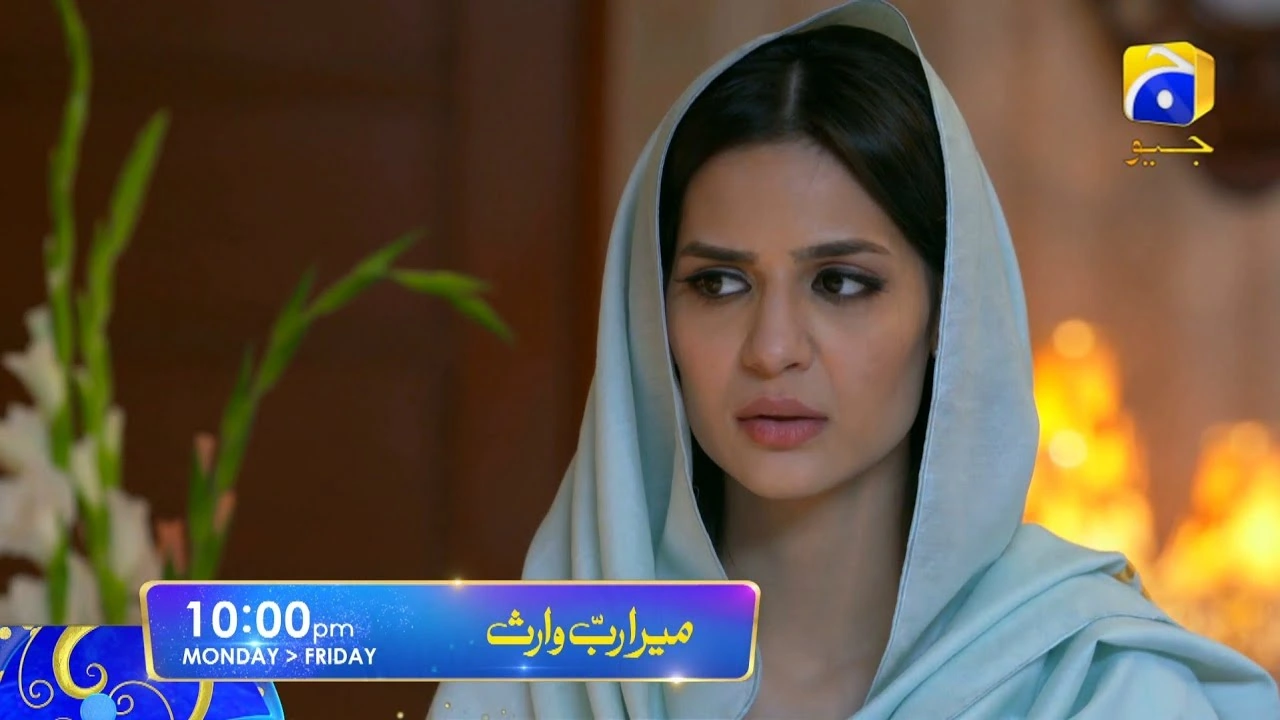
Audience Reception
No drama can truly be evaluated without looking at how it resonated with the people who watched it. A script may be strong, and performances may be powerful, but if the audience does not connect with it, the project cannot be called successful. In the case of Mera Rab Waris, the audience response was not just positive—it was passionate, emotional, and deeply engaging. A good Mera Rab Waris Drama Review must dedicate a full section to exploring how viewers across Pakistan and abroad reacted to the story, characters, themes, and overall production.
Immediate Popularity Upon Release
From its very first episodes, Mera Rab Waris caught the attention of Pakistani audiences. Viewers were intrigued by the fresh storyline that combined faith, love, betrayal, and family dynamics in a way that felt different from typical soap-style dramas. Unlike many serials that take weeks to gain traction, this one quickly became a household conversation topic.
Online platforms such as YouTube, drama forums, and social media pages saw an influx of comments and discussions after each episode. For SEO purposes in this Mera Rab Waris Drama Review, it is important to note that hashtags related to the drama often trended during its peak run, highlighting its wide reach and popularity.
Emotional Connection with Characters
One of the reasons for the drama’s success was the emotional connection audiences built with the characters. Ayesha’s innocence and devotion won over fans almost immediately, with many women relating to her struggle of balancing faith with societal expectations. Haris, too, became a favorite for his charm and internal battles, even when his mistrust tested viewers’ patience.
Faizan, on the other hand, sparked intense reactions. Many viewers admitted they felt genuine anger toward his manipulative schemes, which is a testament to how convincingly the actor played his role. A balanced Mera Rab Waris Drama Review must emphasize that audience engagement was fueled by both love for the protagonists and hatred for the antagonist.
Online Discussions and Debates
The drama also created significant online debate. Audiences frequently discussed whether Haris was justified in doubting Ayesha, or whether Ayesha was too patient in dealing with betrayal. These conversations gave the drama a life beyond television screens, turning it into a social phenomenon.
Fans on platforms like Facebook and Instagram often wrote long posts analyzing the deeper meaning of the story. For instance, some praised the emphasis on trust and loyalty in marriage, while others criticized the overuse of misunderstandings. Any Mera Rab Waris Drama Review would be incomplete without acknowledging how the show sparked intellectual and emotional debate among its viewers.
Critical Acclaim and Ratings
In addition to popular response, the drama received critical acclaim. Reviewers praised its storyline for addressing faith in a modern context, something not often explored in mainstream dramas. The performances, especially those of the lead actors, were widely recognized as authentic and impactful.
Television rating points (TRPs) remained consistently high during its run, reflecting the strong audience interest. For a Mera Rab Waris Drama Review, this success in ratings shows that the drama appealed to both critics and general audiences alike.
International Viewership
Interestingly, Mera Rab Waris also reached audiences beyond Pakistan. Through YouTube uploads and satellite channels, overseas Pakistanis and South Asian communities in countries like the UK, USA, and Middle East followed the story. Many international viewers expressed that they found the themes of faith and loyalty universally relatable, even if they were not deeply familiar with Pakistani culture.
This global appreciation broadened the drama’s impact and made it a notable entry in international discussions of Pakistani television. An SEO-focused Mera Rab Waris Drama Review benefits from pointing out this international reception, as many readers search for Pakistani dramas that resonate worldwide.
Criticisms from Audiences
Despite its popularity, not all audience reactions were positive. Some viewers felt that the repeated misunderstandings between Haris and Ayesha became frustrating, as Haris often doubted her too quickly. Others criticized the slightly rushed resolution toward the end, believing that the drama could have given more time to emotional closure.
These criticisms did not diminish overall popularity but reflect that even beloved dramas are not immune to mixed reactions. A balanced Mera Rab Waris Drama Review must recognize these voices to remain credible.
Emotional Impact and Lasting Legacy
Perhaps the strongest measure of audience reception is the emotional impact the drama left behind. Even after its conclusion, fans continued to share clips, quotes, and scenes online, keeping the story alive in public memory. Viewers often commented that the drama made them reflect on their own relationships, family bonds, and faith in God.
The fact that audiences continue to discuss Mera Rab Waris years after its airing proves that it left a lasting legacy. For any Mera Rab Waris Drama Review, this long-term impact is a key indicator of success.
Audience Reception in Conclusion
In summary, the audience reception of Mera Rab Waris was overwhelmingly positive, with strong ratings, critical acclaim, and passionate online discussions. Viewers felt emotionally invested in the characters, debated moral dilemmas, and carried the story beyond the television screen into real-life conversations. Though criticisms about pacing and misunderstandings existed, they were far outweighed by the emotional connection the drama built with its audience.
For a complete Mera Rab Waris Drama Review, it is safe to conclude that the drama achieved what every television serial aspires to: it moved people, sparked conversation, and left a legacy that audiences will remember for years.

Final Verdict
Every drama leaves behind an impression that either cements its position as a classic or relegates it to being forgotten over time. With Mera Rab Waris, the verdict is quite clear—it was a drama that touched hearts, sparked conversations, and stood out for its meaningful themes. A well-rounded Mera Rab Waris Drama Review must end with a fair final judgment, considering the story, performances, direction, themes, audience response, and overall execution.
A Drama Beyond Entertainment
The strongest verdict on Mera Rab Waris is that it was not just entertainment; it was a narrative with a purpose. In an industry where many dramas are criticized for glamorizing materialism, toxic relationships, or overused family feuds, this serial dared to present a story rooted in faith, loyalty, and morality. That decision alone elevated it above countless others.
The drama proved that Pakistani audiences are hungry for content that not only entertains but also inspires self-reflection. This aspect makes it deserving of high praise in any Mera Rab Waris Drama Review.
Performances That Defined the Story
The cast’s acting was one of the main reasons the drama worked so well. Ayesha’s portrayal was touching and sincere, Haris struck the right emotional balance, and Faizan became a character audiences loved to hate. Their collective performances turned a good script into an unforgettable story.
When analyzing the final verdict in this Mera Rab Waris Drama Review, it becomes clear that the actors gave life to the themes of loyalty, betrayal, faith, and greed. Without such strong portrayals, the drama may not have achieved the same emotional depth.
Direction That Elevated the Script
The direction deserves special mention in the final verdict. By keeping the storytelling restrained and avoiding unnecessary melodrama, the director allowed the script and performances to breathe. Symbolic visuals, thoughtful pacing, and emotional framing turned each episode into more than just a sequence of events—it became an experience.
In this Mera Rab Waris Drama Review, we must recognize that the direction played a key role in setting the drama apart from others airing at the same time.
Strengths That Outweigh Weaknesses
Of course, the drama was not without flaws. The repeated misunderstandings between Haris and Ayesha tested the patience of some viewers. Certain side characters could have been developed more fully, and the conclusion, though impactful, felt rushed to some. However, these weaknesses did not diminish the drama’s overall quality.
A balanced Mera Rab Waris Drama Review concludes that the strengths—the powerful storyline, relatable themes, brilliant acting, and strong direction—far outweighed the shortcomings.
Audience Love and Legacy
The audience verdict on Mera Rab Waris was overwhelmingly positive. From passionate debates on social media to high ratings on television, viewers showed their engagement week after week. International audiences, too, embraced the story, proving that its themes were universal.
Even years after its release, fans still revisit the drama, share clips online, and quote its dialogues. This kind of long-lasting love is rare, and it makes the final verdict even stronger: Mera Rab Waris earned its place as one of the most memorable dramas of its time.
The Drama’s Moral Value
Another crucial aspect of the final judgment is the drama’s moral value. By weaving themes of faith, betrayal, justice, and family dynamics into a compelling narrative, Mera Rab Waris encouraged viewers to reflect on their own lives. It highlighted the importance of loyalty, the dangers of greed, and the strength found in faith.
This moral dimension gives the drama a timeless quality. For SEO and thematic relevance in this Mera Rab Waris Drama Review, it must be emphasized that the show went beyond ordinary storytelling to deliver lessons with emotional resonance.
Comparisons with Other Dramas
When compared to other dramas airing around the same time, Mera Rab Waris clearly stood out. While many shows relied on repetitive love triangles or over-the-top domestic conflicts, this drama offered something different. It showed that Pakistani television can create stories that are meaningful without sacrificing entertainment.
Thus, in the grand scheme of things, the final verdict is that Mera Rab Waris helped set a benchmark for thoughtful drama-making in Pakistan.
Final Words: A Balanced Judgment
After considering every aspect—plot, performances, direction, themes, audience reception, and weaknesses—the final verdict is clear. Mera Rab Waris was a drama that not only entertained but also left a deep emotional and moral imprint. Its occasional flaws were minor compared to the richness of its storytelling.
A comprehensive Mera Rab Waris Drama Review must therefore conclude that the drama deserves to be remembered as one of the most impactful Pakistani serials of its time. It combined spirituality with human emotions, making it relatable, thought-provoking, and memorable.
Conclusion of the Final Verdict
In the end, Mera Rab Waris can be judged as a drama that succeeded on multiple levels: it connected with audiences, delivered strong performances, sparked debate, and left behind a lasting message. While not perfect, it was sincere, heartfelt, and meaningful—a rare combination in the world of television.
The Mera Rab Waris Drama Review final verdict is this: it was a drama that proved faith and love, when woven together, can create storytelling that is both timeless and unforgettable.
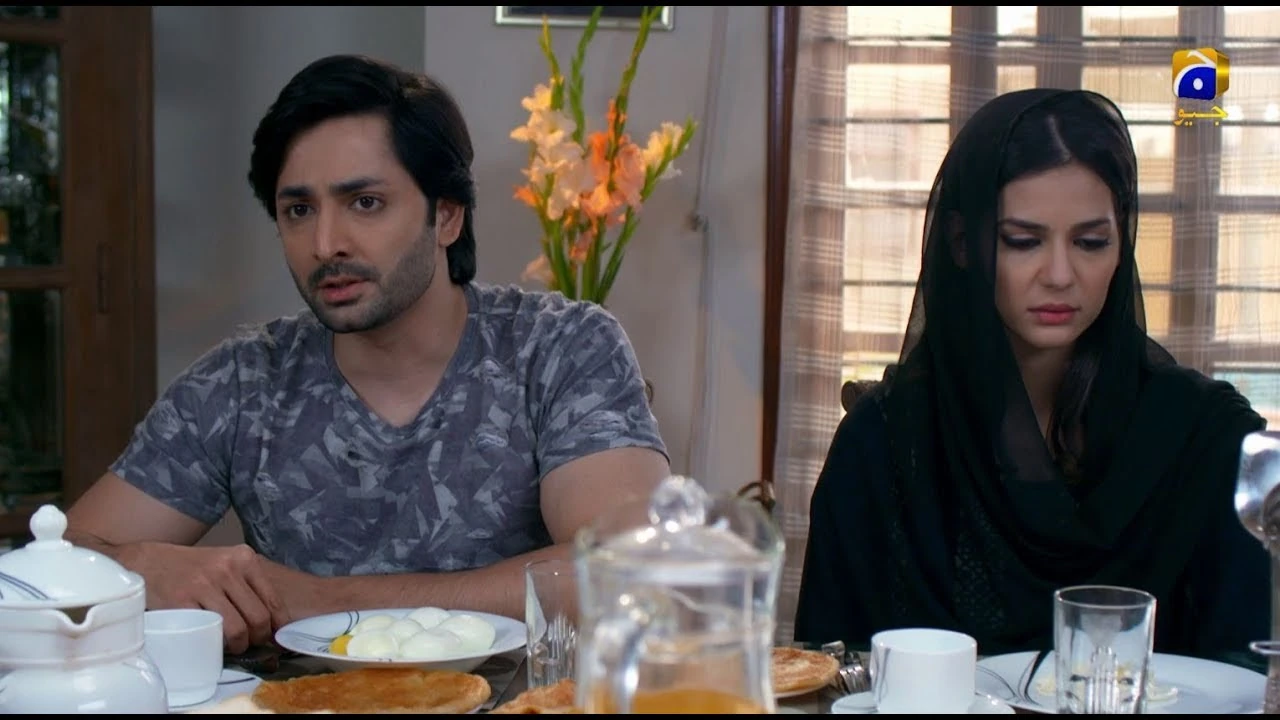
Conclusion: Wrapping Up the Mera Rab Waris Drama Review
Every review must end with a reflection on why the drama stood out, what lessons it left behind, and how audiences can remember it in the years to come. As we reach the conclusion of this Mera Rab Waris Drama Review, it becomes clear that this drama was far more than a typical love story. It was a narrative that intertwined faith, morality, loyalty, betrayal, and family values into a gripping and emotional tale.
Why Mera Rab Waris Stood Out
One of the main reasons Mera Rab Waris became so popular was its ability to go beyond clichés. Where many dramas relied on tired formulas of endless misunderstandings or exaggerated family feuds, this one gave viewers a meaningful story grounded in faith and human emotions. Ayesha and Haris were not just characters; they represented two different worlds—one rooted in spirituality and simplicity, and the other leaning toward modern values and independence. Watching their love story unfold while battling internal and external challenges gave audiences a refreshing alternative to mainstream narratives.
This is why, in wrapping up the Mera Rab Waris Drama Review, it is safe to say that the drama managed to balance entertainment with purpose—something very few dramas achieve.
Lessons from the Drama
No conclusion would be complete without highlighting the lessons the story left behind. Mera Rab Waris taught us about the importance of trust in relationships, the destructive nature of greed, the consequences of betrayal, and the strength that faith provides in times of hardship.
Ayesha’s patience showed viewers that faith and endurance can help overcome the harshest trials. Haris’s journey highlighted how doubt and mistrust can damage relationships but also how forgiveness can rebuild them. Faizan’s downfall served as a warning about greed and manipulation. These moral lessons, when woven into engaging storytelling, left a deep mark on viewers’ hearts.
This Mera Rab Waris Drama Review therefore emphasizes that the drama was not just something to watch—it was something to learn from.
The Impact on Audiences
Another key takeaway in concluding this review is how the drama impacted audiences. Viewers across Pakistan and abroad engaged in discussions about the story, debated the characters’ choices, and even related the drama to their own lives. That kind of connection is what turns a drama into a cultural phenomenon.
Even today, clips, dialogues, and emotional scenes from Mera Rab Waris are shared online, proving that it continues to resonate with people long after its final episode aired. This enduring popularity is a strong reason why the Mera Rab Waris Drama Review must underline its legacy.
Strengths and Shortcomings in Perspective
While concluding, it is fair to address both strengths and weaknesses. Yes, some viewers were frustrated with Haris’s constant doubts and the rushed ending, but these shortcomings are minor compared to the overall impact of the drama. The strong performances, emotional depth, and powerful themes more than compensated for these issues.
Thus, the final note of this Mera Rab Waris Drama Review is that while not flawless, the drama achieved far more good than harm, leaving behind a legacy of meaningful entertainment.
Contribution to Pakistani Television
It is also important to view Mera Rab Waris in the larger context of Pakistani television. By weaving spirituality into mainstream storytelling, it showed that audiences are open to dramas that challenge norms while still providing compelling entertainment. It inspired both writers and producers to think beyond traditional formulas and experiment with layered narratives.
This contribution makes Mera Rab Waris not just a successful drama but also an influential one. In wrapping up this Mera Rab Waris Drama Review, this contribution deserves special recognition.
A Timeless Story
Finally, what makes Mera Rab Waris unforgettable is its timelessness. Themes of loyalty, betrayal, greed, justice, and faith will never go out of relevance. Every generation will face these dilemmas, and this drama captured them in a way that feels universal. That is why the story continues to find new audiences, even years after its release.
In conclusion, a comprehensive Mera Rab Waris Drama Review must acknowledge that this drama was more than just television; it was storytelling with heart, soul, and purpose. It entertained, educated, and inspired—qualities that define the very best of Pakistani dramas.
Wrapping It All Up
To wrap up this Mera Rab Waris Drama Review, we can confidently say: Mera Rab Waris will always be remembered as a drama that blended love and faith with powerful life lessons. It gave viewers characters they could root for, cry with, and learn from. It created moments that still echo in the memories of fans. Most importantly, it proved that when dramas are written with sincerity and performed with passion, they can leave behind an impact that lasts for years.
So while many dramas fade away after their final episode, Mera Rab Waris continues to live on—in conversations, in memories, and in the hearts of viewers who found in it not just a story, but a reflection of life itself.
Thanks for Visiting



